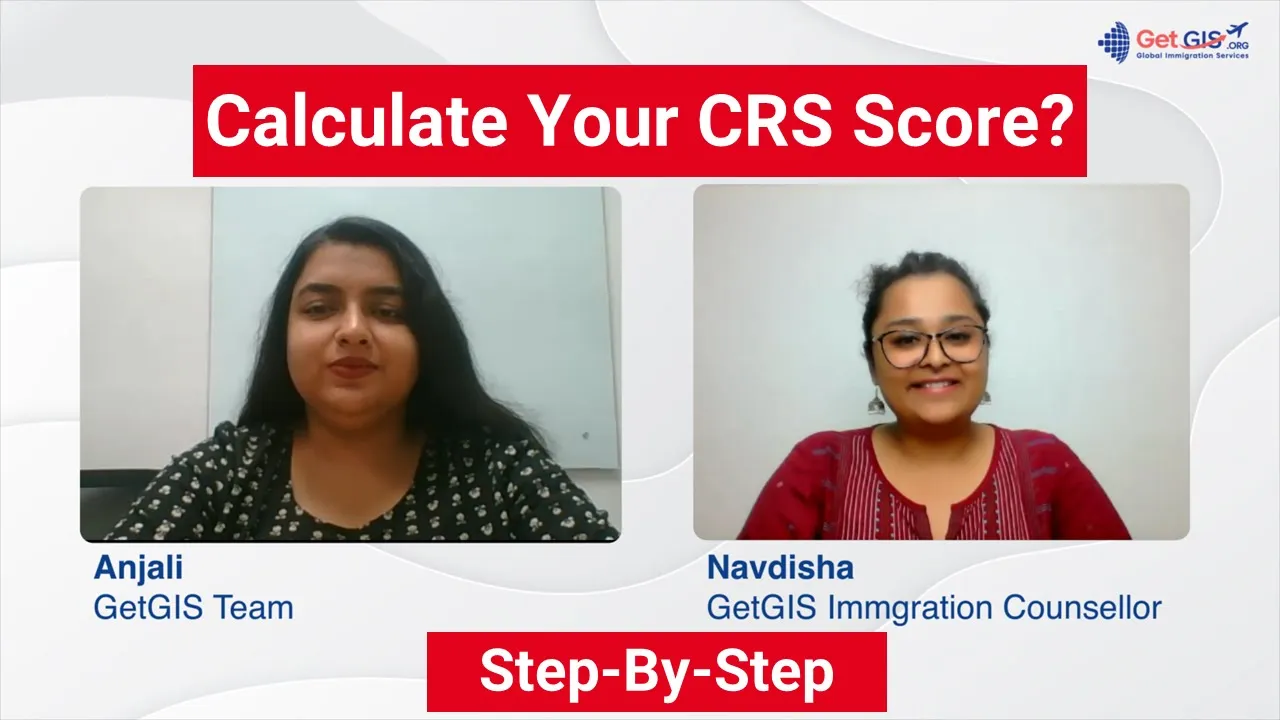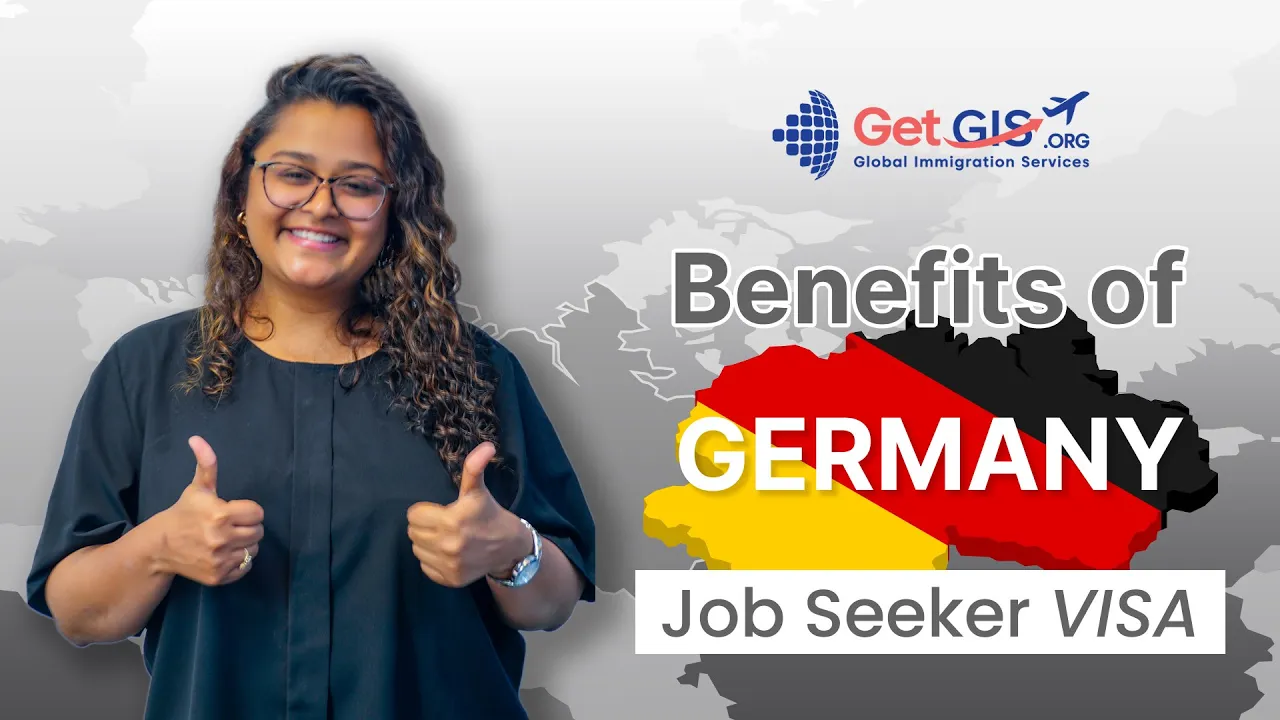Popup Title
This is the subtitle of the popup.
Medical Council of Canada: Role of MCC, Eligibility, MCQE Exam
Apply for Canada Permanent Residence
Check Free PR or Work Visa Eligibility
We will send a reset link to the email below
Medical Council of Canada (MCC) plays a crucial role in the evaluation and certification of medical professionals in Canada. MCC Canada ensures that immigrants meet the rigorous standards set for medical practice in the country.
Let us deep dive and understand the intricacies of the Medical Council of Canada (MCC) and help you navigate the path to obtaining your medical license.
What is the Role of the MCC in Canada Immigration?
- Assessment Excellence: The MCC's primary role is to assess the qualifications and competence of physicians in Canada. They conduct examinations for both international and Canadian medical students and graduates, ensuring they meet the high standards of medical care in the country.
- International Evaluation: The MCC Canada evaluates close to 10,000 international medical students and graduates annually. Through their assessments, they determine the equivalency of their qualifications and ensure they meet the requirements to practice medicine in Canada.
- Global Reach: The MCC's examinations are offered in Canada and in 80 other countries, allowing candidates from around the world to pursue their medical career aspirations in Canada.
- Research and Development: The MCC Canada emphasizes R&D to continuously enhance their assessment methods and stay at the forefront of innovation in medical evaluation.
- Regulatory Compliance: The MCC operates in accordance with the regulations and guidelines set by regulatory bodies and medical authorities in Canada, ensuring their assessments align with the standards and requirements of the Canadian healthcare system.
Medical Council of Canada Qualifying Examination (MCQE) Part I
The Medical Council of Canada Qualifying Examination (MCCQE) Part I is a summative test that evaluates critical medical knowledge and clinical decision-making ability at a level appropriate for a medical student pursuing a medical degree in Canada.
The objective of the exam is to evaluate your knowledge and skills in different areas of medical care, generally categorized as follows:
- Dimensions of Care: This category assesses your knowledge and understanding of various aspects of medical care, covering a wide range of medical practices
- Physician Activities: This category focuses on the scope of practice and behaviors expected of a physician.
Each of these categories has four domains
|
Dimensions of Care |
Physician Activities |
|
Health Promotion and Illness Prevention |
Assessment and Diagnosis |
|
Acute Care |
Management |
|
Chronic Care |
Communication |
|
Psychosocial Aspects |
Professional Behaviours |
Eligibility Requirements for the MCCQE Part I
If you wish to apply for the Medical Council of Canada Qualifying Examination Part I, you must have graduated from, or be expected to graduate from the following school:
- A medical school accredited by the Committee on Accreditation of Canadian Medical Schools (CACMS); or
- A medical school listed in the World Directory of Medical Schools and identified by a Canada Sponsor Note indicating it is an acceptable medical school in Canada; or
- A United States School of Osteopathic Medicine accredited by the American Osteopathic Association.
Eligibility Requirements If You Are a Student: For students, the application can be submitted up to 15 months before the expected graduation date. However, once the application is approved, the eligibility window starts 12 months from the expected graduation date.
Eligibility Requirements If You Are a Graduate: You must have a medical degree/diploma that is either in progress of source verification or has been successfully source verified.
Medical Council of Canada Qualifying Examination (MCQE) Part I Fees
Here are the MCQE examination fees and other administrative functions to ensure a smooth examination process.
|
Application fee |
$1,420 |
|
MCCQE Part I Examination withdrawal fee* |
$710 |
|
Eligibility window extension – Administrative fee** |
$113 |
|
Appeal fee |
$1,135 |
* Non-refundable.
**If the exam fees have increased since you applied for the MCCQE Part I, you must also pay the difference. These fees are non-refundable.
Medical Council of Canada Objectives
MCC Examination Objectives are based on the CanMEDS framework, developed by the Royal College of Physicians and Surgeons.
This framework defines different roles for physicians, including communicator, collaborator, health advocate, leader/manager, scholar, professional, and medical expert.
Under the medical expert role, the objectives are organized into 3 categories:
- Clinical presentation/diagnosis
- Population health and its determinants
- Ethics, legal, and organizational aspects of medicine.
Each objective outlines the expectations for a Canadian physician. As you prepare for MCC exams, carefully review the objectives and associated key and enabling objectives.
If you identify any areas where your knowledge or skills are weak, it indicates that you may need to study further in those areas.
Licentiate of the Medical Council of Canada (LMCC)
The Licentiate of the Medical Council of Canada (LMCC) is an important qualification for medical graduates who want to practice medicine in Canada. It is not a license to practice, but a necessary step towards provincial registration.
Eligibility for the LMCC (Licentiate of the Medical Council of Canada)
To be eligible for the LMCC, you need to meet certain requirements:
- Medical Education: You must have graduated from a recognized medical school listed in the World Directory of Medical Schools. Your credentials will be verified by the MCC to ensure their validity and equivalence to Canadian standards.
- Qualifying Exam: You must pass the MCCQE Part I exam, which assesses your medical knowledge and clinical decision-making abilities. The exam is conducted online in various countries.
- Work Experience: You need to have completed at least 12 months of acceptable postgraduate medical training in your home country.
Additionally, you will have to pay the LMCC application fees as specified by MCC Canada.
Provinces and Their Licensing Authorities in Canada
Obtaining a license as a physician or surgeon in Canada varies across different provinces and territories. Each province has its own licensing requirements and offers different types of licenses, including those for independent practice or clinical observership.
The below table represents the provinces and their licensing authorities:
|
Province/Territory |
Medical regulatory bodies |
|
Alberta |
|
|
British Columbia |
|
|
Manitoba |
|
|
New Brunswick |
|
|
Newfoundland and Labrador |
College of Physicians and Surgeons of Newfoundland & Labrador |
|
Nova Scotia |
|
|
Ontario |
|
|
Prince Edward Island |
|
|
Quebec |
|
|
Saskatchewan |
|
|
Northwest Territories |
|
|
Yukon |
|
|
Nunavut |
Eligibility Requirements for a Medical Licence in Canada
Below are the eligibility requirements for a license to practice medicine in Canada.
- Valid Medical Degree and LMCC: You must have a valid medical degree and obtain the Licentiate of the Medical Council of Canada (LMCC).
- Eligible Status: You must have Canadian citizenship, permanent residence, a valid work permit, or a certificate of registration authorizing independent or academic practice or postgraduate education.
- Language Proficiency: You must demonstrate proficiency in either English or French language. The IELTS requirement for the medical council of Canada is Band 7.
- Provisional Licence: In some provinces, you may need to acquire Canadian work experience in medicine on a provisional license before qualifying for a license to practice independently.
Read about pebc Canada and international credential evaluation service canada
Medical In-Demand Job List Canada
Physicians and surgeons are in high demand across many provinces and territories in Canada. The shortage of trained medical professionals is projected to persist until at least 2031, even with the addition of new graduates and foreign physicians immigrating to Canada.
As per the recent data, between 2022 and 2031, approximately 48,900 job openings are anticipated for general practitioners and family physicians.
Below are the occupations that have the highest demand for medical professionals:
|
OCCUPATION |
National Occupational Classification (NOC) |
|
Specialists in Clinical and Laboratory Medicine |
31100 |
|
Specialists in surgery |
31101 |
|
General practitioners and family physicians |
31102 |
|
Veterinarians |
31103 |
|
Dentists |
31110 |
|
Optometrists |
31111 |
|
Pharmacists |
31120 |
|
Dieticians and nutritionists |
31121 |
|
Psychologists |
31200 |
|
Physiotherapists |
31202 |
|
Other professional occupations |
31209 |
|
Nursing coordinators and supervisors |
31300 |
|
Registered Nurses |
31301 |
|
Nurse Practitioners |
31302 |
|
Physicians assistants, midwives, and allied health professionals |
31303 |
Harness the Power of MCC Canada and Join the Physicians
In conclusion, pursuing a medical career in Canada requires navigating through various processes and requirements. The Medical Council of Canada (MCC) plays a crucial role in assessing and ensuring the competency of physicians. From the eligibility criteria to licensing examinations, the MCC sets the standards for medical practice in Canada.
To make your PR journey smoother and more successful, it is beneficial to seek guidance from experts like GetGIS Immigration Consultants. Our counselors possess extensive knowledge and experience in PR immigration services to Canada and Australia.
We provide end-to-end assistance in realizing your dream of practicing medicine in Canada and in achieving your professional goals in the Canadian healthcare system.
Thinking of Moving Abroad? Here's How We Can Help
- Point calculation: In GetGIS, we calculate your points on your behalf to eliminate any chances of rejection or failure.
- Visa application: GetGIS helps you to complete your visa application properly and we even train you for your visa interview process, to make your immigration journey easier.
- Preparation for Language Test: GetGIS offers you expert guidance for your preparation for language tests like IELTS/PTE/CELPIP.
- Expert guidance for each step of your immigration: With GetGIS, you rest assured about your immigration journey. We help you to take every step in the right direction to make your immigration journey smooth.
- Job Search assistance: At GetGIS, you receive complete job search assistance, from CV optimization, to mock interviews everything is covered by GetGIS. And we won’t leave you alone until you get your job in your dream country.
So don’t waste your time thinking about the best time to visit Australia. Start your career in Australia with GetGIS by Booking a Free Consultation Today!
FAQs on Medical Council of Canada
1. How you will receive your MCCQE Part I results?
Results will be available approximately eight weeks after the session’s last day. Examination results are confirmed by the Medical Council of Canada (MCC) Exam Oversight Committee (EOC).
2. How the MCCQE Part I pass score is established?
Every few years, the Medical Council of Canada (MCC) brings together a panel of Canadian physicians to define an acceptable level of performance and establish the passing score for the MCCQE Part I through a standard-setting exercise.
3. What is an Educational Credentials Assessment or ECA for Canada?
An Educational Credential Assessment (ECA) confirms whether or not your medical degree or medical diploma is comparable to a Canadian one.
4. How long does it take to get ECA from the Medical Council of Canada?
Your MCC ECA report will be generated and mailed to you within 14 calendar days of your request.
5. Why do I need a credential assessment by MCC?
A credentials assessment by the Medical Council of Canada (MCC) is required to evaluate your medical education and qualifications obtained outside of Canada. This assessment is necessary to determine if your credentials meet the standards and requirements set by Canadian medical regulatory authorities.
6. Can I Immigrate to Canada as a homeopathic doctor?
Yes, Homeopathy has achieved the status of a regulated health profession in Ontario, signifying that all homeopaths are now bound to adhere to the established standards of practice, competencies, and entry-to-practice requirements set forth by the Regulatory College of Homeopaths. The NOC code for homeopath is 32209
7. How do I know if my name has been added to the Canadian Medical Register?
Physicians meeting MCC requirements are listed in the Canadian Medical Register as LMCC. They receive a plastic card Certificate of Registration as official proof of their MCC registration and a Testamur for display purposes.
8. Is an Indian Medical degree valid in Canada?
Yes, an MBBS degree from India is recognized as valid in Canada. To obtain a medical license in a specific province, students must meet the requirements set by the respective province's licensing body. This typically includes passing certification exams administered by the Royal College of Physicians and Surgeons of Canada.
9. What is MBBS called in Canada?
In Canada, the equivalent of MBBS is called Doctor of Medicine (MD). Undergraduate medical education programs in Canada include various bachelor's level courses such as UGME, BSc Medicine, Bachelor of Medical Science, and others. The MD program in Canada typically spans three to four years.
10. How much money do Doctors make in Canada?
The income of medical professionals in Canada is influenced by several factors, including the province of practice, specialization, and years of experience. According to Canada's Job Bank, the median annual income for general practitioners and family physicians is reported to be $216,833.
Useful Resources
Your Journey With Us
At GetGIS, we strive to provide a seamless and hassle-free journey for our clients who are seeking job-seeker visas for Germany, Sweden, Austria and UAE. Here's what you can expect when you choose to work with us:
1. Initial Consultation
We begin by scheduling an initial consultation to understand your career goals, preferences, and eligibility for the job seeker visa.2. Document Preparation
Once we have assessed your eligibility, we provide a comprehensive list of documents required for the job seeker visa application, and assist you in preparing the required documents.3. Application submission
We review your application to ensure that all required documents are complete and accurate.4. Job Search Assistance
Once you have obtained the job seeker visa, we provide job search assistance to help you find relevant job openings in your preferred sector and location.5. Post-landing Assistance
We offer post-landing assistance to help you settle in your new country, including assistance with finding accommodation, opening a bank account, and other essential services.Why choose GetGIS?
GetGIS is the leading immigration consultant for PR visas and Job Seeker visas. We adopt a unique approach of tech-enabled operation that helps the clients to have real-time progress mapped anytime and anywhere. Along with the advantage of 1:1 IELTS training, we have a whole range of IELTS self-training guides in store to ensure your interrupted training.
The benefits of associating with GetGIS include:
Why choose GetGIS?
-
Tech-enabled user interface
-
1:1 dedicated immigration expert and country expert guidance
-
Job Search Assistance
-
Pre to Post PR assistance
-
7 Bands guaranteed IELTS training and guidance
-
Transparent and competitive pricing
Eligibility First, Process Next
Canada PR Calculator
It evaluates your eligibility for Canadian PR based on factors like age, education, language skills, and work experience. This helps you assess your overall suitability for Canadian immigration.
Explore MoreCanada CRS Calculator
This tool estimates your Comprehensive Ranking System (CRS) score for the Express Entry program. A higher CRS score increases your chances of receiving an Invitation to Apply (ITA) for Canadian PR.
Explore MoreSaskatchewan PNP Calculator
This tool assesses your eligibility for Saskatchewan's SINP based on factors like age, education, work experience, and language skills. It estimates your chances for a provincial nomination.
Explore MoreCLB Converter
The tool converts your language test scores into Canadian Language Benchmark levels, helping you understand your language proficiency for Canadian immigration programs.
Explore MoreAustralia Calculator
The tool calculates your eligibility and generates an estimated score for various Australian immigration programs by evaluating factors such as age, education, language proficiency, and work experience.
Explore MoreExperts Guidance to make your application stand out
Empowering Your Journey: Expert Guidance and Insights on Navigating the Immigration Landscape. Join our FREE Webinar
Latest Immigration News

British Columbia Holds First 2026 Skills Immigration Draw, Invites 429 Candidates
Kritika Pandey
13/02/2026

Ontario PNP Announces 31% Increase in Nomination Allocation for 2026
Kritika Pandey
12/02/2026

New Brunswick Issues Fresh Invitations to Skilled Workers, Local Graduates, and Francophone Candidates
Jemima Sultana
12/02/2026

Canada Conducts Record-Breaking Category-Based Express Entry Draw
Jemima Sultana
09/02/2026

New South Wales NSW Nominations 2025-26 Now Open for Pathway 1 & 3
Lakshmi
19/01/2026

Canada Invites 574 PNP Candidates in 1st Express Entry Draw of 2026
Lakshmi
06/01/2026

Canada Express Entry Draw Predictions and Expectations for 2026
Lakshmi
05/01/2026

5 Major Canada Immigration Changes That Took Effect From January 1, 2026
Lakshmi
05/01/2026

IRCC Issues 5,000 ITAs in New CEC Draw with Lowest CRS Cutoff of 2025
Kritika Pandey
17/12/2025

Canada Passes Bill C-3, Providing a Clear Pathway to Citizenship for Many
Lakshmi
16/12/2025

Canada Issues 399 ITAs for PR in Latest Express Entry Draw for PNP
Kritika Pandey
16/12/2025

All CRA Benefit Payments 2026 Dates Announced
Kritika Pandey
15/12/2025

Updated IRCC Canada Visa Processing Times OUT for December 2025
Lakshmi
12/12/2025

After Two-Month Hiatus, OINP Extends Over 1,100 Invitations Across Five Draws
Kritika Pandey
12/12/2025

Canada Shares 1,000 Invites in 1st Category-Based Express Entry Draw of December
Lakshmi
12/12/2025

Canada Launches New Streams to Attract and Retain World-Class Researchers
Kritika Pandey
11/12/2025

6,000 CEC Candidates Receive ITAs in Dec 10 Express Entry Draw
Lakshmi
11/12/2025

New Zealand Opens Seasonal Hiring with 2 New Work Visas
Lakshmi
10/12/2025

Canada Invites 1,123 Candidates in Largest 2025 Express Entry PNP Draw
Lakshmi
09/12/2025

Canada Introduces New PR Pathways to Attract International Doctors
Lakshmi
09/12/2025

Are Germany’s Skill Shortages, Visa Reforms Creating New Opportunities for Indians?
Kritika Pandey
09/12/2025

New Canada Workers Benefits Set to Increase in 2026
Lakshmi
08/12/2025

Are These Four Countries Shaping India’s Study Abroad Choices for 2025-26?
Lakshmi
05/12/2025

Canada Implements New Immigration Fee Changes From December 2025
Lakshmi
05/12/2025

Ontario Proposes Two-Phased Revamp of PR Nominee Selection
Kritika Pandey
05/12/2025

New Express Entry Report Reveals What Drove Most PR Invitations in 2024
Kritika Pandey
05/12/2025

Ontario Residents to Receive 3 New CRA Benefit Payments in December 2025
Kritika Pandey
05/12/2025

Minimum Wage in Ontario Set for Another Increase in 2026
Lakshmi
03/12/2025

Canada Revenue Agency Releases Federal Income Tax Brackets for 2026
Kritika Pandey
03/12/2025

New PR Pathways Coming Up for Canada in 2026
Lakshmi
03/12/2025

NSW Releases Key Skilled Migration Program Updates for 2025-26
Lakshmi
02/12/2025

December 2025 Express Entry Draw Predictions & CRS Score Trends
Lakshmi
02/12/2025

Major Changes in Canadian Laws & Rules Arriving in December 2025
Kritika Pandey
02/12/2025

IRCC Invites 6,000 Express Entry Candidates with French Language Proficiency
Kritika Pandey
01/12/2025

Canada Now Allows Special Study Permits for Accompanying Family of Workers & Students
Kritika Pandey
01/12/2025

New Canada Immigration Processing Times as of November 26 RELEASED
Kritika Pandey
28/11/2025

Australia Launches Immi App to Ease Visa Application Process
Lakshmi
28/11/2025

IRCC Invites 1,000 CEC Candidates in Nov 26 Express Entry Draw
Kritika Pandey
27/11/2025

Big Relief for Indian-Origin Families as Canada Clears Bill C-3 for Foreign-Born Children’s Citizenship
Lakshmi
27/11/2025

Major Canada Study Permit Rule Changes Unveiled for 2026
Kritika Pandey
26/11/2025

Canada Invites 777 Candidates for PR in 2nd Largest PNP Express Entry Draw
Lakshmi
26/11/2025

Prince Edward Island Conducts Largest PNP Draw of the Year
Lakshmi
25/11/2025

New Zealand Introduces Business Investor Work Visa With Direct Pathway to Residency
Lakshmi
25/11/2025

Alberta Holds 2nd Largest PNP Draw of 2025 Inviting 1,125 Candidates
Lakshmi
24/11/2025

South Australia Announces 2,250 Allocations for General Skilled Migration Program 2025-26
Lakshmi
24/11/2025

UK to Introduce Faster Settlement Route for Individuals Earning Over £125,000
Kritika Pandey
21/11/2025

Updated IRCC Processing Times Out for November 2025
Kritika Pandey
21/11/2025

New Data Shows Sharp Difference in US Visa Wait Times Across Indian Cities
Lakshmi
20/11/2025

Canada Unveils New Automated System to Speed Up Study Permit Extensions
Lakshmi
19/11/2025

Canada Issues Major Draw for Healthcare PR, Lowers CRS to 462
Kritika Pandey
19/11/2025

Canada to Introduce Fast-Track Immigration Pathway for H-1B Visa Holders
Kritika Pandey
18/11/2025

Profiles Receiving Maximum ITAs in Recent Express Entry CEC Draws
Lakshmi
18/11/2025

UK to Now Let International Students Transition to Innovator Founder Visa Without Leaving
Kritika Pandey
17/11/2025

Europe to Introduce Major Visa and Border Changes in 2026: What Travelers Need to Know
Lakshmi
17/11/2025

IRCC Conducts 2nd CEC Draw of November 2025, Inviting 1,000 Candidates to PR
Lakshmi
13/11/2025

Canada's Job Market Bounces Back in October, Unemployment Falls to 6.9%
Kritika Pandey
12/11/2025

Trump Defends H-1B Visa, Call it Necessary to Fill US Talent Gaps
Kritika Pandey
12/11/2025

Over 1,100 Candidates Invited in Four Alberta Provincial Immigration Draws
Kritika Pandey
12/11/2025

Canada Increases Off-Campus Working Hours for International Students in 2026
Lakshmi
12/11/2025

IRCC Prioritizes In-Canada Candidates for PR Under New Immigration Levels Plan 2026-2028
Lakshmi
12/11/2025

Manitoba PNP Issues 47 Invitations in First November 2025 Draw
Kritika Pandey
11/11/2025

IRCC Invites 714 Candidates in Largest Express Entry PNP Draw Since April 14
Kritika Pandey
11/11/2025

Canada’s New Immigration Plan Confirms 3,80,000 Annual PR Intake Till 2028
Kritika Pandey
07/11/2025

Migration Tasmania Issued 100 ROIs in Weekly Invitations for 2025-26 Program Year Following Full Nomination Allocations
Lakshmi
07/11/2025

Canadian Provinces to Welcome More Immigrants as Targets Increase Over 66% for 2026
Lakshmi
07/11/2025

OECD Data Shows Indian Students Looking Beyond Traditional English-Speaking Countries
Kritika Pandey
07/11/2025

November 2025 Express Entry Draw Predictions & CRS Score Trends
Lakshmi
06/11/2025

Canada Introduces New Cancellation Rules for Visitor Visas, eTAs, Work Permits & Study Permits
Kritika Pandey
06/11/2025

Canada to Roll Out Accelerated Pathway for H-1B Visa Holders to Boost Skilled Worker Recruitment
Kritika Pandey
05/11/2025

Canada’s Immigration Levels Plan 2026-28 Will Include New Pathways to Grant PR for Temporary Residents
Lakshmi
05/11/2025

Indians Emerge as Key Beneficiaries of UAE's Golden Visa Program
Kritika Pandey
04/11/2025

UAE Updates Visa-on-Arrival Rules for Indian Passport Holders
Lakshmi
04/11/2025

Manitoba PNP Issues 29 Invitations in Latest Skilled Worker Draw
Kritika Pandey
03/11/2025

UAE Launches 30-Minute Return Permit for Golden Visa Holders Stranded Abroad
Lakshmi
03/11/2025

Saudi Arabia Launches New Instant KSA Visa Platform for Faster & Simplified Travel Entry
Lakshmi
30/10/2025

Australia Launches Online Confidential Tool to Support Immigrants with Expired Visas
Kritika Pandey
30/10/2025

IRCC Conducts 3rd Largest Express Entry Draw of 2025, Issuing 6,000 ITAs to French-speaking Candidates
Lakshmi
30/10/2025

Canada to Redefine Immigration Strategy to Attract Skilled Global Talent & Boost Innovation
Lakshmi
29/10/2025

Latest October 28 Express Entry Draw Invites 1000 CEC Candidates
Kritika Pandey
29/10/2025

Saskatchewan Files First Charges Under Immigration Protection Laws to Safeguard Worker Rights
Lakshmi
29/10/2025

IRCC Conducts Express Entry Draw Inviting 302 PNP Candidates
Lakshmi
28/10/2025

Canada’s New Online Tool Reveals Sharp Rise in Processing Times for Some Applications
Kritika Pandey
28/10/2025

UK Hikes Fast-Track Immigration Processing Fees By Up to 75%
Lakshmi
28/10/2025

Ontario Moves to Expand List of Regulated Healthcare Professionals for Expedited Work Authorization
Kritika Pandey
27/10/2025

IRCC to Unveil Immigration Levels Plan 2026-28: Check Expected Changes & Priorities
Lakshmi
24/10/2025

IRCC to Accept More Applications Through FMCSP Study to PR Pathway in 2025-26
Lakshmi
24/10/2025

IRCC Canada Visa Processing Times As of October 2025 (Updated)
Lakshmi
22/10/2025

New Brunswick PNP Issues 522 Invitations in October 2025 Draws
Lakshmi
22/10/2025

UAE Launches AI-Powered 'Eye' System to Streamline Work Permit Processing
Kritika Pandey
20/10/2025

Times Higher Education Ranking 2026 Unveils Top Universities in Canada
Lakshmi
20/10/2025

NSW Skilled Migration Program Invitation Round to be Held Next Week
Lakshmi
17/10/2025
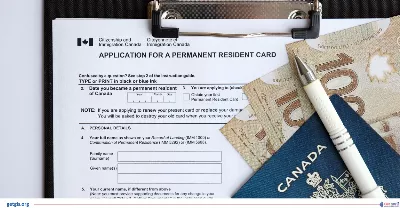
IRCC Updates Tool Allowing Applicants to Track Personalized PR and Citizenship Processing Times
Kritika Pandey
17/10/2025

Canada IEC 2025 Season Closing Soon; Apply for Work Permits by Oct 20
Lakshmi
17/10/2025
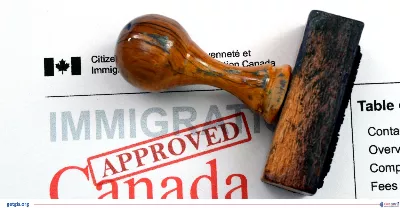
Ontario Issues Over 1,600 Candidates with Job Offers for Provincial Nomination
Kritika Pandey
16/10/2025

IRCC Conducts Major Express Entry Draw Inviting 2,500 Healthcare Professionals
Lakshmi
16/10/2025

Canada Invites 345 PNP Candidates in Latest Express Entry Draw
Kritika Pandey
15/10/2025

Germany Ends 3-Year Fast-Track Citizenship Rule, Reinforcing Standard 5-Year Requirements
Lakshmi
15/10/2025

Canada Named Among Top 10 Countries in 2025 Condé Nast Survey
Kritika Pandey
14/10/2025

Qatar Golden Visa Emerges as a Viable Path to Long-Term Residency for Indians
Lakshmi
14/10/2025

Manitoba PNP Issues 862 Invitations in Latest Skilled Worker Draw
Kritika Pandey
13/10/2025

IRCC Canada Increases MPNP Quota by 1,489 Spots for 2025
Lakshmi
13/10/2025

Alberta Holds 3 Back-to-Back PNP Draws Inviting 1,324 Candidates Between October 1-7, 2025
Lakshmi
13/10/2025

Indian Students in France Rise 17%, 2030 Target on Track
Lakshmi
10/10/2025

IRCC Revises Processing Times Yet Again in October 2025 — Here’s the Latest
Kritika Pandey
10/10/2025

Tasmania Officially Announces Start of Skilled Migration State Nomination Program 2025
Lakshmi
10/10/2025
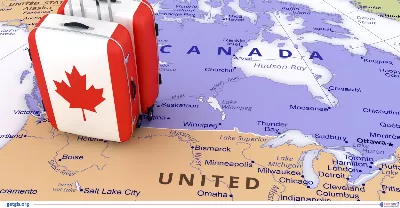
Canada Immigration Levels Plan 2026-28 Coming in November 2025; Targets Likely to Rise
Kritika Pandey
09/10/2025

Saudi Arabia Introduces Unified Employment Contract to Protect Workers’ Rights
Lakshmi
09/10/2025
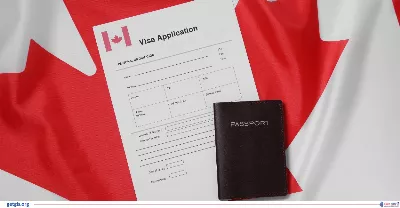
Canada’s IRCC Announces Which PR Applications It Will Process in 2025
Kritika Pandey
09/10/2025

Schengen Countries to Roll Out New Entry/Exit System Starting October 12
Kritika Pandey
08/10/2025

GCC to Launch Unified Tourist Visa for Six Gulf Nations By Late 2025
Lakshmi
08/10/2025

Newfoundland and Labrador Invites 217 Candidates in Latest PNP and AIP Draw
Kritika Pandey
07/10/2025

UK Home Office Approves Extra Visas for UCL After Record Surge in International Applications
Lakshmi
07/10/2025

UK PM Keir Starmer to Visit India Amid Drastic Changes to UK Visa and Settlement Rules
Kritika Pandey
07/10/2025

IRCC Conducts Major Express Entry Draw Inviting 4,500 French-Speaking Candidates
Lakshmi
07/10/2025

Alberta Issues 1,433 Invitations in Latest PNP Draws
Lakshmi
06/10/2025

Canada Updates Immigration Processing Times for October 2025
Kritika Pandey
06/10/2025

IRCC Invites 1,000 CEC Candidates in First Express Entry Draw of October 2025
Kritika Pandey
06/10/2025

British Columbia Extends 491 ITAs to Skilled Workers and Entrepreneurs
Lakshmi
06/10/2025

Canada’s New Initiatives to Attract Global Talents
Kritika Pandey
01/10/2025

UAE Introduces 4 New Visit Visas Along With Major Residency Rules Updates
Lakshmi
01/10/2025

IRCC Canada Issues 291 ITAs in Latest Express Entry PNP Draw
Lakshmi
30/09/2025
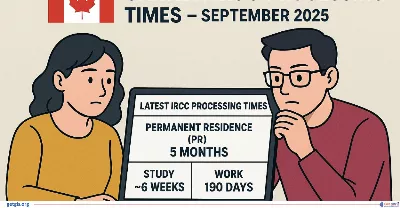
Big Changes in New IRCC Processing Times for September 2025
Kritika Pandey
26/09/2025

Austria Opens New Opportunities for Indian Engineering Graduates Under Fresh Pact
Kritika Pandey
25/09/2025

Indians in Germany Earn More Than Locals, Envoy Calls for Skilled Workers from India
Lakshmi
25/09/2025

Canada Overtakes US as Top Destination for International Students: Report
Kritika Pandey
24/09/2025

Surge in Last Minute India-US Flight Bookings
Kritika Pandey
22/09/2025

Next Canada Pension Plan Payments Arriving on September 25
Lakshmi
22/09/2025

Manitoba Issues Provincial Nomination Invitations to Over 900 Skilled Workers
Kritika Pandey
22/09/2025

First Trade-Specific Express Entry Draw of 2025 Issues 1,250 Invitations
Kritika Pandey
19/09/2025

Canada Holds Major Education Express Entry Draw, Issues 2500 Invitations
Kritika Pandey
19/09/2025

Indians Can Get a Portuguese Golden Visa & EU Citizenship With INR 2.6 cr Donation
Lakshmi
18/09/2025

Canada Increases Provincial Nominee Program Quotas for Four Provinces in 2025
Kritika Pandey
17/09/2025

Latest September 2025 IRCC Processing Times for Study & Work Permits
Kritika Pandey
17/09/2025

Australia Holds Immigration Cap Steady at 185,000 for 2025-26 Despite Rising Protests
Lakshmi
17/09/2025

Education Students to Now Have Clear Pathway to Canada PR
Kritika Pandey
16/09/2025
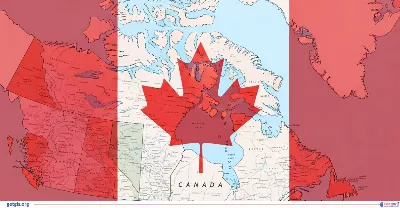
IRCC Issues 228 PNP Invitations Under Express Entry in Latest September 2025 Draw
Kritika Pandey
16/09/2025

Alberta Invites 1,376 Candidates Across 7 Provincial Immigration Draws in September 2025
Kritika Pandey
15/09/2025

New Zealand’s University of Otago Announces ₹23 Lakh Scholarships for Indians
Kritika Pandey
15/09/2025

Next Canada Child Benefit Payments Arriving Early on September 19
Lakshmi
15/09/2025

Latest Canada IRCC Processing Times As of September 2025
Kritika Pandey
12/09/2025

Indians Eligible for Sweden Permanent Residency for Under INR 14,000
Lakshmi
12/09/2025

Germany Permanent Residency Available for Under INR 11,500, Indians Eligible
Lakshmi
11/09/2025

Canada Immigration Processing Times Since July 2025: What Changed?
Lakshmi
11/09/2025

Newfoundland and Labrador Issues 202 Invitations in Latest PNP Draw
Lakshmi
10/09/2025

Quebec Issues 231 Immigration Invitations in Recent Skilled Worker Selection Draw
Kritika Pandey
09/09/2025

Manitoba Issues 3,347 Invitations in 253rd PNP Draw
Kritika Pandey
08/09/2025

Germany Emerges as Top Choice for Indian Students: New Report
Lakshmi
08/09/2025

Five Canadian Provinces to Increase Minimum Wage from October 1
Kritika Pandey
08/09/2025

IRCC Invites 4,500 Candidates in September 4 Express Entry Draw
Kritika Pandey
05/09/2025

India-Germany Announce Gratis Student Visas and Expanded Cooperations in Key Sectors
Lakshmi
05/09/2025

Latest September 2025 Express Entry Draw Invites 1,000 CEC Candidates
Kritika Pandey
04/09/2025

IRCC Holds First Express Entry Draw of September, Invites 249 PNP Candidates
Kritika Pandey
03/09/2025

Ontario PNP Conducts Multiple Draws on September 2, Issues 2643 Invitations
Lakshmi
03/09/2025

Alberta Holds Draws to Invite Law Enforcement Professionals
Kritika Pandey
03/09/2025

Increased Fund Requirements for Canadian Study Permits Now in Effect
Kritika Pandey
02/09/2025

September 2025 Express Entry Draw Predictions & CRS Score Trends
Lakshmi
02/09/2025

Ontario Issues 468 Provincial Nominee Invitations in August 28 Draws
Kritika Pandey
01/09/2025

Over 58% of Healthcare Workers Received Canada PR Between 2000-2022: Study
Lakshmi
01/09/2025

IRCC Revises Processing Times for the Third Time in August 2025
Kritika Pandey
29/08/2025

Nova Scotia PNP Plans to Invite 1,312 More PR Candidates Amid High Demand
Lakshmi
29/08/2025

Greece Golden Visa: Indians Can Apply with €250,000, Live with Family Long-Term
Kritika Pandey
28/08/2025

Oman Set to Launch Golden Visa on August 31, Aligning with Gulf Neighbours
Jemima Sultana
28/08/2025

Canada Reveals Schedule for Category-Based Express Entry Draws in 2025
Lakshmi
28/08/2025

Prince Edward Island Sends Out 132 Invitations for Provincial Nomination
Kritika Pandey
27/08/2025

Saskatchewan Announces Increase in Nominations Under SINP for 2025
Kritika Pandey
27/08/2025

Canada Expected to Exceed PR Target of 395,000 in 2025
Kritika Pandey
26/08/2025

US Embassy in India Offers Explanation for 221(g), 214(b) Visa Rejections
Kritika Pandey
25/08/2025

Manitoba Invites 77 Skilled Workers in Latest August 2025 Provincial Draw
Kritika Pandey
25/08/2025

Next Round of Canada Pension Plan Payments Coming August 27
Lakshmi
25/08/2025

Canada to Boost Francophone Admissions Outside Quebec for PR and Jobs
Jemima Sultana
25/08/2025

TOEFL Essentials Test to Be Accepted for Canada PR Applications
Kritika Pandey
22/08/2025

IRCC Announces Revised Visa Processing Times for August 2025
Jemima Sultana
22/08/2025

New Medical Exam Requirement Now in Effect for Express Entry PR Applicants
Lakshmi
22/08/2025

Is H-1B Uncertainty Pushing Indians Towards Australia, Germany & Canada?
Lakshmi
21/08/2025

Canada Proposes 3 New Occupational Categories Under Express Entry in 2026
Kritika Pandey
21/08/2025

Canada Holds Second Largest Healthcare Express Entry Draw of 2025
Kritika Pandey
20/08/2025

Alberta Holds Biggest 2025 Draw Inviting 683 Candidates for Provincial Immigration
Lakshmi
20/08/2025

Newfoundland and Labrador Issues 231 Invitations Through PNP and AIP
Jemima Sultana
19/08/2025

Canada Issues 192 PR Invitations in Fourth Express Entry Draw of August 2025
Kritika Pandey
19/08/2025

Canada Introduces New Guidelines for Cash-Based Work Experience Applicants
Lakshmi
19/08/2025

Canada’s Rural Immigration Pilot Undergoes Changes Amid Rising Demand
Kritika Pandey
18/08/2025

Quebec Issues 273 Invitations Under Skilled Worker Selection Program
Kritika Pandey
18/08/2025

New Zealand to Launch New Seasonal Visa Program Starting December 2025
Lakshmi
18/08/2025

Canada to Make Biometrics Mandatory for Citizenship Applications in 2026-27
Jemima Sultana
18/08/2025

Next Canada Child Benefit Payment to Hit Bank Accounts on August 20
Lakshmi
18/08/2025

Canada to Require Medical Exams for PR through Express Entry Starting August 21
Kritika Pandey
13/08/2025

India’s Passport Rises to 77th Rank in 2025 on Henley Passport Index, Marking Decade-High Position
Jemima Sultana
12/08/2025

Canada Introduces Express Entry Draw Category Changes for 2026
Lakshmi
12/08/2025

Canada Raises Fund Requirements to CAD 10,507 for Rural PR Pathways
Lakshmi
11/08/2025

Canada's Third Express Entry Draw of August 2025 Issues 2500 PR Invitations
Kritika Pandey
11/08/2025

Manitoba Issues 37 Invitations in First Provincial Nominee Draw of August
Jemima Sultana
11/08/2025
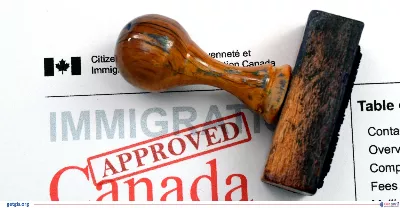
Canada Issues 1,000 CEC Invitations in First Express Entry Draw of August 2025
Kritika Pandey
08/08/2025

Australia Adds 3 New English Language Tests for Visa Applications
Lakshmi
08/08/2025

IRCC Announces New Processing Times for August 2025
Jemima Sultana
08/08/2025

Australia to Increase International Student Intake Cap to 295,000 in 2026
Jemima Sultana
07/08/2025

Switzerland Updates Schengen Visa Document Rules for Indians
Kritika Pandey
07/08/2025

First August 2025 Express Entry Draw Issues 225 PR Invitations to PNP Candidates
Lakshmi
07/08/2025

SAT Registration Now Open for First Exam of 2025-26 on August 23
Jemima Sultana
06/08/2025

Canada to Mandate Language Tests for Open Work Permits in 2026
Kritika Pandey
06/08/2025

USCIS Introduces New Guidelines for Marriage-Based Green Card Applicants
Lakshmi
06/08/2025

August 2025 Brings Big Education & Immigration Changes for Indians
Lakshmi
05/08/2025

Newfoundland and Labrador Holds 6th Provincial Immigration Draw, Issues 150 Invitations
Kritika Pandey
05/08/2025

West Kootenay, British Columbia, Releases List of Designated Employers for Rural PR Pathway
Jemima Sultana
05/08/2025

August 2025 Canada Express Entry Draw Predictions & CRS Score Trends
Kritika Pandey
05/08/2025

Alberta's Latest Draw Issues 39 Invitations to Construction Workers
Kritika Pandey
04/08/2025

Ontario Residents to Receive 3 New CRA Benefit Payments in August 2025
Jemima Sultana
04/08/2025

Canada Increases Funds to Immigrate through AIP in 2025
Lakshmi
04/08/2025

IRCC Launches Policy to Add Officer Decision Notes for Visa Refusals
Kritika Pandey
01/08/2025

Canada Plans 6 New TFWP Changes to Support Employers and Protect Workers
Lakshmi
31/07/2025

IRCC Increases Minimum Income Requirements for Canada Super Visa
Kritika Pandey
31/07/2025

New US Visa Waiver Guidelines for Indian Applicants Starting September 2
Jemima Sultana
30/07/2025

eVisa Now Mandatory for International Students, Skilled Workers in UK
Kritika Pandey
30/07/2025

Manitoba's Altona/Rhineland Unveils Priority Sectors & Employers for Rural PR Pathway
Lakshmi
30/07/2025

Quebec Issues 238 Invitations in First Skilled Worker Selection Program Round
Kritika Pandey
29/07/2025

Canada’s Parents and Grandparents Sponsorship Program Now Open for 2025
Kritika Pandey
29/07/2025

UAE Golden Visa Buzz Among Indians: What’s Real & What’s Not
Lakshmi
29/07/2025

New CPP Payment of Up to $1,433 Scheduled Across Canada on July 29
Lakshmi
29/07/2025

UK to Offer 1,800 Annual Visas for Indian Chefs, Musicians, Yoga Instructors
Kritika Pandey
28/07/2025

Canada Introduces Free PASS Program to Support Internationally Trained Nurses
Jemima Sultana
28/07/2025

“Let Us Handle Immigration”, Canadian Provinces Demand Immigration Autonomy
Lakshmi
28/07/2025

Schengen Launches “Cascade” Visa System to Streamline Travel Across Europe
Lakshmi
25/07/2025

IRCC Reveals Latest Immigration Processing Times As of July 22, 2025
Kritika Pandey
24/07/2025

Canada Revises Income Requirements for Sponsoring Parents and Grandparents Under PGP
Jemima Sultana
24/07/2025

Prince Edward Island Issues 39 More Invitations to Apply for Provincial Nomination
Kritika Pandey
23/07/2025

Canada Invites 4000 Healthcare Workers in July 22 Express Entry Round
Jemima Sultana
23/07/2025

Canada Begins Public Consultations for 2026-28 Immigration Levels Plan
Lakshmi
23/07/2025

Newfoundland and Labrador Invites 359 Candidates in Latest Immigration Draw
Kritika Pandey
23/07/2025

New UK Immigration Rules Effective July 22, Here's What You Need to Know
Jemima Sultana
22/07/2025

August 2025 US Visa Bulletin Offers Major Relief for Indians
Lakshmi
22/07/2025

Canada Rolls Out New Express Entry Draw on July 21, Issues 202 PR Invitations
Kritika Pandey
22/07/2025

Alberta Holds 6 New PNP Draws in July 2025, Issues 382 PR Invitations
Kritika Pandey
21/07/2025

QS Best Student Cities 2026: Seoul Ranks 1; Tokyo and London Follow
Kritika Pandey
18/07/2025

Freelance Visa Worth INR 7,500 Lets You Live and Work in Germany for 1 Year
Lakshmi
18/07/2025

UK to Reopen Ballot for India Young Professionals Scheme Visa 2025 on July 22
Kritika Pandey
18/07/2025

Mississauga Tops List of 10 Happiest Cities in Canada for 2025: New Survey
Jemima Sultana
17/07/2025

Canada to Issue Invitations for Parents & Grandparents Program in Late July
Kritika Pandey
17/07/2025

Canada Child Benefit Payments to be Paid Early in July 2025 with 2.7% Increase
Kritika Pandey
17/07/2025

International Students in Australia Can Now Work Unlimited Hours During Course Breaks
Lakshmi
16/07/2025

New Zealand to Double International Student Market by 2034, Relaxes Work Rules
Jemima Sultana
15/07/2025

Canada Sees Strong Employment Growth with 83,000 New Jobs in June 2025
Lakshmi
15/07/2025

Ontario Releases 9 In-Demand Jobs for Permanent Residency
Jemima Sultana
15/07/2025

Newfoundland & Labrador Issues 320 Invitations for Provincial Immigration
Kritika Pandey
14/07/2025

Manitoba Targets Skilled Workers and International Graduates in Latest Draw
Jemima Sultana
14/07/2025

British Columbia PNP Invites Qualified Entrepreneurs in Latest Draw
Lakshmi
14/07/2025

Germany Aims for 500000 Immigrants Yearly; 57% Want to Stay Permanently
Jemima Sultana
11/07/2025

Indian Student Enrolment in New Zealand Jumps 34% in a Year, Find Out Why
Kritika Pandey
11/07/2025

Australia Remains Top Choice for Indian Students Despite Increased Visa Fees
Lakshmi
11/07/2025

Quebec Pauses Certain Immigrant Sponsorship Applications Through June 2026
Kritika Pandey
10/07/2025

UAE Denies Rumors of Lifetime Golden Visa for Indians, Warning Aspirants Against Fraud
Lakshmi
10/07/2025

Canada Invites CEC Candidates with Lowest CRS Score Since September 2024
Jemima Sultana
10/07/2025

Canada Increases Minimum Fund Requirements for Express Entry Candidates
Lakshmi
09/07/2025

Australia Welcomes 450,000 Indian Tourists Amid Easier Visa and Flight Access
Jemima Sultana
09/07/2025

Alberta Holds Two More Draws to Invite Candidates for Provincial Nomination
Jemima Sultana
08/07/2025

New Federal Government Jobs Now Open in Canada
Jemima Sultana
08/07/2025

Canada’s Average Salaries Jump to $67,466 in 2025, Ontario Outpaces National Average
Lakshmi
08/07/2025

Canada Holds First Express Entry Draw in July 2025, Issues 356 ITAs
Kritika Pandey
08/07/2025

PGWP Eligibility Restored for 178 Programs in Canada Until Early 2026
Kritika Pandey
07/07/2025

Canada Announces New C11 Work Permit Requirements For Business Owners in 2025
Lakshmi
07/07/2025

Increased Canada Workers Benefit Payments on July 11
Jemima Sultana
07/07/2025

Australia Increases Student Visa Fee by 25% to AUD 2,000
Kritika Pandey
07/07/2025

IRCC Shares Immigration Processing Times for July 2025
Jemima Sultana
04/07/2025

Brandon, Manitoba, Unveils Designated Employers List for Rural Pathway to PR
Jemima Sultana
04/07/2025

Canada to Increase Study Permit Financial Requirements from September 2025
Lakshmi
04/07/2025

US Student Visa Applications are Now Open, says State Department Official
Jemima Sultana
03/07/2025

Dubai Sees 42% of International Students from India, with Tech and Business in Demand
Kritika Pandey
03/07/2025

UAE Emerges as Global AI Talent Magnet Amid Western Tech Slowdown
Lakshmi
03/07/2025

Australia Launches Interim Tertiary Education Commission to Build Future-Ready Workforce
Jemima Sultana
03/07/2025

Manitoba’s PNP Draw Invites More Foreign Workers and Students
Jemima Sultana
02/07/2025

Canada Express Entry July 2025 Draw Predictions and CRS Trends
Lakshmi
02/07/2025

Canada's Increased GST/HST Payments to Hit Bank Accounts on July 4
Lakshmi
01/07/2025

Alberta Holds Five Provincial Immigration Draws through AAIP
Kritika Pandey
30/06/2025

Canada to Launch New Pathway for Permanent Residency in 2025
Jemima Sultana
30/06/2025

Canada Raises LMIA Wage Thresholds for Temporary Foreign Workers - Effective June 27, 2025
Lakshmi
30/06/2025

Latest Canada Express Entry Draw Issues 3,000 Invitations for Permanent Residency
Jemima Sultana
27/06/2025

Canada Revises List of Fields of Study Eligible for PGWP
Kritika Pandey
26/06/2025

QS World University Rankings 2026: Complete List of Universities
Jemima Sultana
26/06/2025

IRCC Releases Canada’s Immigration Plan for 2025-26
Jemima Sultana
25/06/2025

IRCC Holds Express Entry Draw for PNP Applicants, Inviting 503 Candidates
Lakshmi
24/06/2025

Newcomers in Canada Can Now Apply Online for Federal Benefits, Credit Payments
Jemima Sultana
24/06/2025

New Zealand Now Recognizes Indian Qualifications for Migration & Visa
Kritika Pandey
24/06/2025

95% of Indian Immigrants Remain in Canada After Gaining Citizenship: Report
Jemima Sultana
23/06/2025

North Bay Names Designated Employers for RCIP PR Pathway
Lakshmi
23/06/2025

Canada Lands 7th Spot for Work-Life Balance, Says Report
Kritika Pandey
23/06/2025

Canada Introduces 4 New Immigration Reforms for Temporary Residents
Lakshmi
20/06/2025

Ontario Updates Intake for Employer Job Offer Streams
Jemima Sultana
20/06/2025

NSW and South Australia Introduce Invite-Only Visa for Global Talent
Lakshmi
19/06/2025

Germany Welcomes Indian Students Amid US Visa Delays, Reports 35% Surge in Applications
Lakshmi
19/06/2025

Canada’s New Brunswick Raises PR Quota to 4,250 Amid Labour Shortage
Jemima Sultana
18/06/2025

IRCC Allows Extra Express Entry Points for Remote Foreign Work while Working in Canada
Lakshmi
18/06/2025

Manitoba Issues New Invitations to Skilled Workers Under PNP
Jemima Sultana
17/06/2025

Canada Extends EMPP Till End of 2025 to Offer Priority PR Routes for Refugees
Lakshmi
17/06/2025

Indian Students Eligible for Canada Jobs Paying ₹2,400/hr
Kritika Pandey
17/06/2025

Next Canada Child Benefit Payment to Hit Bank Accounts on June 20
Lakshmi
16/06/2025

IRCC Offers New Tech Jobs in Canada Paying $101K–$141K/Year
Lakshmi
16/06/2025

Canada's New OINP Portal Launching July 2025 to Streamline Hiring Foreign Talent
Kritika Pandey
16/06/2025

3,000 CEC Candidates Invited in Canada’s Latest Express Entry Draw
Kritika Pandey
13/06/2025

Canada’s West Kootenay Releases Priority Jobs List for PR in 2025
Lakshmi
13/06/2025

Germany Hits Record Citizenship Numbers in 2024, Sets New Rules for 2025
Lakshmi
12/06/2025

McMaster, PEI Partner to Ease Medical Practice in Canada for Foreign-Trained Doctors
Jemima Sultana
12/06/2025

Canada Announces Key Sectors and Occupations in Sudbury, Ontario for PR
Kritika Pandey
11/06/2025

Canada Identifies Key Occupations, Sectors in Pictou County for Rural PR Program
Jemima Sultana
11/06/2025

125 PR Invitations Issued in Canada’s Express Entry Round on June 10
Lakshmi
11/06/2025

Newfoundland and Labrador Holds Third Provincial Immigration Draw for 2025
Jemima Sultana
10/06/2025

Residents in Ontario to Receive 3 Key CRA Benefit Payments in June 2025
Lakshmi
09/06/2025

Canada Tightens Maintained Status Rules for Temporary Residents
Jemima Sultana
09/06/2025

Boosting PR in Quebec Can Ease Reliance on Temporary Residency: Report
Kritika Pandey
09/06/2025

More French Express Entry Draws Expected as Canada Targets 12% Francophone PRs
Kritika Pandey
06/06/2025

Canada Issues 500 PR Invitations in New Express Entry Draw on June 4
Jemima Sultana
06/06/2025

Canada Bill C-3 to Ease Citizenship Rights for Canadians Born Abroad
Lakshmi
06/06/2025

Ontario Issues 3,719 Invitations to Apply (ITAs) for Provincial Nomination
Lakshmi
05/06/2025

June 2025: Snapshot of Canada Express Entry Pool
Kritika Pandey
03/06/2025

British Columbia Raises Minimum Wage to $17.85 per Hour Starting June 1
Jemima Sultana
03/06/2025

Canada Issues 277 Invitations in First Express Entry Draw Under New Immigration Minister
Lakshmi
03/06/2025

Foreign Workers in Canada Can Now Switch Jobs While Waiting for New Permits
Jemima Sultana
02/06/2025

EB-5 Emerges as Alternative for Indian Students Facing F-1 Visa Hurdles
Kritika Pandey
02/06/2025

Manitoba Holds New Foreign Skilled Workers Draw Under MPNP
Lakshmi
02/06/2025

Canada Welcomes 834,310 New Temporary Resident Applications in Major Move
Jemima Sultana
30/05/2025

Yukon Nominee Program Opens Invitations for 2025 Intake
Jemima Sultana
29/05/2025

87,812 Indians Got Canadian Citizenship In 2024, Most From Any Nation
Kritika Pandey
29/05/2025

PEI PNP May 2025 Draw Issues 168 Invitations for SKilled Workers in High Demand Sectors
Lakshmi
29/05/2025

How Provincial Nominee Program Closures Can Benefit Skilled Workers in Canada
Kritika Pandey
29/05/2025

New Changes in Express Entry Trades Category is Making it Easier to Receive PR Invitation
Lakshmi
28/05/2025

Alberta Issues Provincial Nomination Invitation Through AAIP to Tourism & Opportunity Stream Candidates
Lakshmi
28/05/2025

European Countries Issuing Most Schengen Visas to Indians
Lakshmi
23/05/2025

Canada Open Work Permit: Here Is Who Can Apply
Kritika Pandey
23/05/2025

Express Entry Pool Trends and Insights: May 2025 Update
Jemima Sultana
23/05/2025

Low CRS Score? Unlock 50+ Points Through Language Score Improvements
Lakshmi
22/05/2025

Indian Students Overseas Now Eligible for Insurance Cover for Visa Cancellations and Job Loss
Jemima Sultana
21/05/2025

Judicial Review Window for Immigration Extended by 45 Days in Canada
Jemima Sultana
21/05/2025

Canada Announces Major Income Tax Cut 2025 to Ease Cost of Living Burden
Lakshmi
20/05/2025

UK Implements New Immigration Measures to Enhance Skilled Workforce Quality
Lakshmi
20/05/2025

USA Opens Thousands of Student Visa Slots Across Indian Cities
Jemima Sultana
20/05/2025

UK Proposes New Immigration Measures to Enhance Education Standards and Graduate Opportunities
Lakshmi
16/05/2025

Tasmania Skilled Migration Program 2024-25 Nomination Closes Soon| Prioritizes Gold Pass Candidates
Lakshmi
15/05/2025

New Visa Rule Introduced: Germany Ends Remonstration Process from July 2025
Kritika Pandey
15/05/2025

Lena Metlege Diab Is Canada’s New Immigration Minister
Kritika Pandey
14/05/2025

IRCC Canada Issues 500 ITAs in Latest Express Entry Draw for CEC Candidates
Lakshmi
14/05/2025

Canada Sends 511 PR Invitations in New Express Entry Draw on May 12
Jemima Sultana
14/05/2025

UK to Raise English Language Requirements for Permanent Residency Applicants
Jemima Sultana
09/05/2025

IRCC Canada Visa Processing Times As of May 2025
Lakshmi
08/05/2025

Canada’s Express Entry Draws Trend and Changes
Kritika Pandey
08/05/2025

Priority PR Spots in British Columbia PNP for These Healthcare Workers
Jemima Sultana
08/05/2025

Sault Ste Marie, Ontario Discloses Full List Of 25 Occupations For PR
Kritika Pandey
07/05/2025

North Bay, Ontario Lists 25 Occupations Qualifying for Permanent Residency
Jemima Sultana
06/05/2025

Alberta’s $5,000 Moving Bonus Applications Are Now Open
Kritika Pandey
06/05/2025

Canada’s IEC 2025 Program Issues 1900+ Work Permits in Just One Week (May Update)
Lakshmi
05/05/2025

Canada Issues 500 PR Invitations in First Healthcare Express Entry Draw
Jemima Sultana
05/05/2025

Express Entry: Canada holds first-ever draw for Education Professionals
Kritika Pandey
05/05/2025

Nova Scotia Modernises AIP Endorsement Process With New Online System LaMPSS
Lakshmi
01/05/2025

Simplified Schengen Visa Process for Indians Visiting Germany
Jemima Sultana
30/04/2025

IRCC Invites 421 Candidates to PR in the Latest Express Entry PNP Draw
Lakshmi
29/04/2025

Alberta Issues Invitations for Provincial Nomination in Latest Draw
Jemima Sultana
28/04/2025

Top 6 Permanent Residency Routes for International Students After BC PNP
Kritika Pandey
28/04/2025

Prince Edward Island Holds its Fourth PNP Draw of the Year
Kritika Pandey
24/04/2025

New Canada Rural Permanent Residency Pathway Occupations List
Kritika Pandey
23/04/2025

'50% of Revoked US Student Visas Belong to Indians'
Lakshmi
23/04/2025

Statistics Canada is Hiring Across 130+ Locations - Apply Now!
Jemima Sultana
22/04/2025

Applications Open for Victoria Skilled Visa Nomination Program: Last Date to Apply is 29th April 2025
Lakshmi
22/04/2025

Express Entry Pool Sees Positive Shift Following CRS Adjustment
Lakshmi
18/04/2025

British Columbia Introduces 8 New Changes to BC PNP Pathways 2025
Lakshmi
17/04/2025

Canada’s Express Entry Draw Invites PNP Candidates After CRS Score Change
Jemima Sultana
16/04/2025

2025 Hiring Surge in Australia Opens Doors for Global Talent
Jemima Sultana
16/04/2025

Canada Releases 1st Set of Occupations for Permanent Residency Pathways
Lakshmi
11/04/2025

Canada's Provinces are Changing Permanent Residency Selection Process- Here is Everything You Need To Know
Kritika Pandey
11/04/2025

Germany Strengthens Its Appeal as Top Global Education & Work Destination | Doubles Visa Approvals in Last 4 years
Lakshmi
09/04/2025

Australia’s 2025 - 26 Federal Budget Highlights Focus on Skilled Migration and Community Support
Lakshmi
07/04/2025

5 Key Updates in Alberta Immigration in March & April 2025
Jemima Sultana
04/04/2025

Australia Implements Major Changes From July 1 For Skilled Migration Programs
Lakshmi
04/04/2025

Australia Skilled Visa Income Thresholds to Increase by 4.6%
Kritika Pandey
04/04/2025

UK Introduces New Immigration Rules for Skilled Worker Visa
Kritika Pandey
03/04/2025

South Australia Launches Skilled Migration Talent and Industry Connection Program to Bridge Workforce Gaps
Jemima Sultana
03/04/2025

IRCC Canada Visa Processing Times As of April 2025: What has Changed?
Lakshmi
03/04/2025

Ontario’s Minimum Wage to Increase Starting October 1, 2025
Jemima Sultana
02/04/2025

Germany Emerges as a Top Destination for Indian Students Amid Growing Demand for Quality Education
Lakshmi
01/04/2025

Saskatchewan’s 4 New Immigration Pathways Unveiled | SINP Relaunched
Lakshmi
31/03/2025

New Minimum Wage in Canada and 4 Provinces Effective April 1
Kritika Pandey
31/03/2025

Australia Releases New Salary Benchmarks for Foreign Skilled Workers
Kritika Pandey
28/03/2025

New Zealand’s New Initiative Strengthens Indian Students Study Abroad Prospects
Lakshmi
28/03/2025

Tasmania Latest Processing Time and Nominations Used (Updates 2025)
Lakshmi
25/03/2025

Canada Issues 8,036 PR Invitations in Latest Express Entry Draws This Week
Jemima Sultana
25/03/2025

5 Government of Canada Job Openings Across Multiple Locations
Jemima Sultana
24/03/2025

Manitoba, PEI, and Alberta Issue Provincial Nominations Invitations
Lakshmi
21/03/2025

IRCC Invites Candidates to Apply for Permanent Residency in Latest Draw
Lakshmi
20/03/2025

Canada Removes Field of Study Requirements for PGWP, Expanding Work Opportunities for Graduates
Lakshmi
17/03/2025

Canada Reopens Parents & Grandparents Sponsorship: 10,000 Applications in 2025
Jemima Sultana
14/03/2025

Top Pathways to Canadian Permanent Residency in 2025
Jemima Sultana
13/03/2025

Latest IRCC Processing Times: March 2025 Update
Jemima Sultana
10/03/2025

IRCC Issues 4,500 ITAs in Latest Express Entry Draw for French Speaking Candidates
Lakshmi
07/03/2025

IRCC Invites Skilled Professionals to Apply For PR in Latest Express Entry PNP Draw
Lakshmi
05/03/2025

Changes in Canada Express Entry Draw Categories: 2025 Updates
Jemima Sultana
03/03/2025

IRCC Backlog Decreases as Canada Improves Visa Processing Time in 2025
Lakshmi
26/02/2025

Pathways for US H1-B Visa Holders to Relocate to Canada
Jemima Sultana
24/02/2025

Canada’s Job Market Highlights Top 100 Jobs in High Demand Until 2033
Lakshmi
24/02/2025

IELTS Centers in India Now Offering French Classes to Boost Canadian Immigration Chances
Lakshmi
21/02/2025

IRCC Issues 6,500 ITAs in 1st Category Based Draw of 2025
Lakshmi
21/02/2025

Canada PR Alert! Latest Express Entry Draw Results & Cut off Score Revealed
Lakshmi
19/02/2025

Canada Introduces New Measures To Strengthen Temporary Immigration System
Lakshmi
18/02/2025

Are You Eligible for New Canada Child Benefit Payment is Coming on February 20, 2025?
Lakshmi
18/02/2025

British Columbia’s New Minimum Wage Update Takes Effect June 1
Jemima Sultana
17/02/2025

Canada Introduces New Rules for Cancelling Temporary Resident Documents
Jemima Sultana
17/02/2025

Express Entry CRS Cutoff to Drop Below 500? Express Entry Draw Predictions 2025
Lakshmi
17/02/2025

How to Legally Extend Your Stay in Canada After Work Permit Expires
Jemima Sultana
14/02/2025

These Are Canada’s Most Affordable Province With the Best Quality of Life in 2025 Report
Lakshmi
14/02/2025

Express Entry Draws 2025: Key Trends and Current Pool Composition
Lakshmi
12/02/2025

Canada Immigration Processing Times: Updated Estimates for February 2025
Jemima Sultana
11/02/2025

Big changes in Canada Immigration! New PR Pilots Open Doors for Skilled Workers in Rural and Francophone communities
Lakshmi
11/02/2025

Canada’s Immigration Surges All Time High in 2024 at 438K. What’s the Road Ahead for 2025?
Lakshmi
11/02/2025

Ontario’s Minimum Wage Set to Boost in 2025: What You Need to Know
Jemima Sultana
11/02/2025

How Express Entry Tie-Breaker Rule Boosts Your Canada PR Chances
Lakshmi
07/02/2025

Trends in International Student Enrollment in Canada: A Year-by-Year Analysis
Jemima Sultana
07/02/2025

In-Demand Jobs and Visa Process for Working in Germany in 2025
Jemima Sultana
05/02/2025

Canada Extends Open Work Permit Policy for PNP Candidates
Jemima Sultana
04/02/2025

New Home Care Worker Immigration Pilots in 2025 Offer Canada PR on Arrival
Lakshmi
04/02/2025

Upcoming CRA Benefit Payments for Ontario Residents in February 2025
Jemima Sultana
04/02/2025

Canada Restricts Low Wage LMIA Applications in 15 High Employment Regions
Lakshmi
03/02/2025

Australia Sees Record Student Visa Grants Despite Policy Shifts
Lakshmi
03/02/2025

Canada Sets 2025 Study Permit Cap at 437,000 to Enhance Sustainability and Student Experience
Lakshmi
31/01/2025

Ontario PNP Express Entry Stream Updates: Key Changes Effective January 27
Jemima Sultana
31/01/2025

Australia PR 2025: Emerging Opportunities for Migrants, Workers, and Students
Jemima Sultana
29/01/2025

Ontario’s New Regional Permanent Residency Pathway 2025: Key Updates
Jemima Sultana
28/01/2025

Canada Sets Study Permit Application Limit at 5.05 lakh for 2025
Lakshmi
27/01/2025

Canada Spousal Open Work Permit: Complete List of Eligible Jobs
Jemima Sultana
27/01/2025

Government of Canada Hiring Now: Exciting Job Opportunities Across Multiple Locations
Jemima Sultana
27/01/2025

ACS Expands Migration Skills Assessment Program with 10 New Tech Occupations
Lakshmi
24/01/2025

IRCC Canada Invites 4,000 Candidates in Latest Express Entry CEC Draw
Lakshmi
24/01/2025

New Canada Child Benefit Payment on January 20: Here’s What You Need to Know
Jemima Sultana
23/01/2025

Canada’s New Open Work Permit Eligibility Changes Effective January 21: What You Need to Know
Jemima Sultana
23/01/2025

IEC 2025 First Draw: 10,274 Canada Work Permit Invitations Issued
Jemima Sultana
22/01/2025

Australia Introduces Invitation-Only National Innovation Visa for Global Talent
Lakshmi
22/01/2025

6 Expected Occupations in the New Express Entry Draw Category
Jemima Sultana
21/01/2025

A Look Back at the Key Updates to Canada’s Temporary Foreign Worker Program (TFWP) in 2024
Jemima Sultana
21/01/2025

Latest IRCC Canada Processing time for Various Visa Categories as of January 2025
Lakshmi
17/01/2025

Sweden Simplifies EU Blue Card Criteria for Skilled Professionals
Lakshmi
13/01/2025

Prime Minister Justine Trudeau Announces Resignation | Here’s What Happens Next
Lakshmi
13/01/2025

New Year, New Opportunities: First CEC Draw of 2025 Issues 1,350 PR ITAs
Lakshmi
13/01/2025

New Ontario Trillium Benefit (OTB) Payments Begin From January 10, 2025
Lakshmi
09/01/2025

First Advanced Canada Workers Benefit (ACWB) Payment of 2025 to Arrive on January 10
Lakshmi
08/01/2025

IRCC Invites 471 PNP Candidates in First Express Entry Draw of 2025
Lakshmi
08/01/2025

Germany Modernizes Visa Process with a Fully Digital Platform - Consular Services Portal
Lakshmi
06/01/2025

What’s New in Canada Express Entry System? Major Changes Coming in 2025
Lakshmi
06/01/2025

Canada Implements 6 New Rules for International Students from January 2025
Lakshmi
03/01/2025

New Year, New Benefits: CRA Benefits Payments to Boost Canadians in 2025
Lakshmi
30/12/2024

Australia Introduces New Requirements for Onshore Student Visa From January 2025
Lakshmi
30/12/2024

Canada to Enhance Fairness in Express Entry by Removing LMIA Based Job Offer Points
Lakshmi
30/12/2024

IEC 2025: How to Prepare for International Experience Canada (IEC)?
Lakshmi
27/12/2024

Canada Tops the List as the Most Desired Country for Job Seekers Worldwide
Lakshmi
23/12/2024

IRCC Canada Plans to Introduce 4 New Permanent Residency Pathways for 2025
Lakshmi
23/12/2024

BCPNP Issues More Invitations for Skilled Workers and Manitoba to End OWP Policy for PNP Candidates
Lakshmi
23/12/2024

Australia's Skills in Demand Visa for Provides Faster PR Pathway Options for Expats
Lakshmi
20/12/2024

Current Express Entry Pool Status - Updates As of December 2024
Lakshmi
17/12/2024

Canada Immigration Backlog is Shrinking: Update by IRCC as of December 2024
Lakshmi
17/12/2024

How Has Your Chances Increased for Canada PR Through Express Entry in 2025?
Lakshmi
17/12/2024

Manitoba Launches New Pilot Programs for Pathways to Permanent Residency
Lakshmi
12/12/2024

IRCC Canada Implements New Canada Immigration Fees From December 2024
Lakshmi
12/12/2024

IRCC Conducts First French Language Express Entry Draw of December Issuing 800 ITAs
Lakshmi
06/12/2024

IRCC Canada’s Immigration Levels Plan 2025 - 2027 Unveiled
Lakshmi
04/12/2024

Quebec Unveils Immigration Plan 2025 With Steady Admission Targets
Lakshmi
03/12/2024

British Columbia and Manitoba Issue Invitations to Candidates Through PNP Draw
Lakshmi
03/12/2024

Canada’s Federal Pilot Programs Offer New PR Pathways for Quebec Temporary Residents
Lakshmi
03/12/2024

Sweden’s Updated Visa Policy to Create Lucrative Opportunities for Indian Professionals in 2025
Lakshmi
28/11/2024

British Columbia and Alberta Provinces in Canada Issue PNP Invitations to Candidates
Lakshmi
26/11/2024

IRCC Canada Conducts First Healthcare - Focused Express Entry Draw Since July
Lakshmi
26/11/2024

IRCC Conducts Latest Express Entry Draw, Inviting 400 CEC Candidates to PR
Lakshmi
21/11/2024

IRCC Issues 400 ITAs in the Latest Express Entry Draw for Canadian Experience Class Candidates
Lakshmi
18/11/2024

New Canada Child Benefit to Help Parents Cover Costs of Raising Children
Lakshmi
18/11/2024

Current Express Entry Pool Status - Updates As of November 2024
Lakshmi
14/11/2024

IRCC Updates Processing Times for Various Visa Categories as of November 2024
Lakshmi
11/11/2024

Australia to Grant New First Work and Holiday Visas to 1,000 Indians
Lakshmi
08/11/2024

Gaining Canadian Citizenship is Easy with Urgent Citizenship Processing Option by IRCC
Lakshmi
08/11/2024

Exploring the Latest Australia NSW Skills Lists for Skilled Immigrants
Lakshmi
08/11/2024

List of Eligible PGWP Programs Announced by IRCC
Lakshmi
05/11/2024

List of OINP Streams Aligned to Work Directly With Express Entry System
Lakshmi
05/11/2024

New Changes to Canada Post Graduate Work Permit (PGWP) Program Effective From November 2024
Lakshmi
04/11/2024

Germany is Calling for Indians Skilled Professionals, Indian Skilled Labour Visas Cap Increased to 90,000
Lakshmi
25/10/2024

IRCC Canada Invites 1,800 Candidates in the Latest Express Entry Draw for Trade Occupations
Lakshmi
25/10/2024

Canada Extends Immigration Medical Exam Exemption Till October 2029
Lakshmi
24/10/2024

IRCC Invites 400 CEC Candidates to Apply for PR in the Latest Express Entry Draw
Lakshmi
24/10/2024

1,000 ITAs Issued in the Latest Canada Express Entry Draw
Lakshmi
23/10/2024

Australia VETASSESS Unveils the Increasing Assessment Fee for Professional and General Occupations
Lakshmi
22/10/2024

CRA Releases Latest Advanced Canada Workers Benefit (ACWB) Payment on Oct 11
Lakshmi
18/10/2024

New Monthly Tax Benefit to Offer Financial Relief to Ontario Residents
Lakshmi
18/10/2024

IRCC Has Reduced Canada Visa Processing Times in October 2024
Lakshmi
14/10/2024

1,613 Candidates Invited in Canada’s Latest Express Entry PNP Draw
Lakshmi
08/10/2024

IRCC Canada Updates Requirements for Intra Company Transferee (ICT) Work Permit
Lakshmi
08/10/2024

IRCC Canada Announces Changes to Spousal Open Work Permit Allocations
Lakshmi
04/10/2024

IRCC Issued More ITAs in 2024 Compared to 2023: Expert Analysis Report
Lakshmi
04/10/2024

Canada Introduces New LMIA Exempted Work Permit for Tech Talent Under the Innovation Stream
Lakshmi
03/10/2024

Alberta Inaugurates New Permanent Residency Scoring System Today - September 30, 2024
Lakshmi
30/09/2024

Canadian Residents to Receive 5 New CRA Benefit Payments This October
Lakshmi
26/09/2024

Ontario, British Columbia & Quebec Invite Candidates to PR through PNP Draws
Lakshmi
26/09/2024

Detailed Overview of Australia Invitation Round on September 5, 2024
Lakshmi
24/09/2024

Ontario Express Entry Draw Invites 1,424 Candidates
Lakshmi
23/09/2024

4,000 CEC Candidates Receive ITAs in the Latest Express Entry Draw
Lakshmi
20/09/2024

Canada Post is Actively Hiring for Various Locations in Ontario
Lakshmi
19/09/2024

Ontario Invites 1,443 Candidates to PR in 2 OINP Draws on September 17
Lakshmi
18/09/2024

Air Canada is Hiring Entry Level Job Roles for Multiple Locations in Canada
Lakshmi
17/09/2024

Ontario Express Entry Draw Invites 1,269 Candidates to Apply for Canada PR
Lakshmi
13/09/2024

Canada Introduces 24 Hour Work Week Rule for International Students Starting This Fall
Lakshmi
12/09/2024

911 Candidates Receive Invites on September 9 Express Entry PNP Draw
Lakshmi
11/09/2024

Saskatchewan Introduces 2 New PR Pathways under SINP for Healthcare and Agriculture
Lakshmi
10/09/2024

Ontario Express Entry Draw Invites French-Speaking Skilled Workers
Lakshmi
09/09/2024

Statistics Canada is Looking for International Workers to Fill in Semi-Skilled Jobs Vacancies
Lakshmi
03/09/2024

Canada Immigration Backlog Update by IRCC as of August 2024
Lakshmi
02/09/2024

Canada Invites 3,300 CEC Candidates to PR in the Latest Express Entry Draw
Lakshmi
28/08/2024

IRCC Canada Invites 1,121 Candidates to PR in August 26 Express Entry PNP Draw
Lakshmi
27/08/2024

Express Entry Candidates Continue to Witness Positive Economic Outcomes
Lakshmi
26/08/2024

Australia Updates Visa Rules for International Students: What to Look Forward in 2024-25?
Lakshmi
22/08/2024

Germany Visa Processing Time Reduced to 2 Weeks for Skilled Indians
Lakshmi
20/08/2024

IRCC Shares 2000 ITAs in Express Entry Draw for French Proficiency
Lakshmi
19/08/2024

IRCC Canada Invites 763 Candidates for PR in Latest Express Entry PNP Draw
Lakshmi
19/08/2024

Germany Issues 80,000 Work Visas Between January to June 2024
Lakshmi
12/08/2024

Alberta Introduces New EOI-Based Immigration System Beginning September 30, 2024
Lakshmi
09/08/2024

IRCC to Implement New Economic Immigration Class & Pathway for TEER 4 and TEER 5 Applicants
Lakshmi
07/08/2024

IRCC Canada Grants Permanent Residency to 34,234 Candidates in July 2024
Lakshmi
06/08/2024

Breaking News! IRCC Canada Invites 5,000 Candidates in the Latest Express Entry CEC Draw
Lakshmi
05/08/2024

IRCC Canada Revises Visa Processing Times for Various Immigration Programs on July 31, 2024
Lakshmi
05/08/2024

IRCC Canada Issues 964 ITA's to PNP Candidates in 30 July 2024 Express Entry Draw
Lakshmi
31/07/2024

Register Now to Build Your Career in Prince Edward Island
Lakshmi
30/07/2024

Ontario Updates 2 Immigrant Nominee Program (OINP) Criteria to Align with Federal Express Entry Draws 2024
Lakshmi
30/07/2024

Hiring Alert! CRA Jobs Available in Various Locations Across Canada
Lakshmi
23/07/2024

Australia’s Migrations Program Planning Levels: Key Insights & Future Outlook
Lakshmi
23/07/2024

Canada PNP Draws: Ontario & British Columbia held Major Draws Between July 6-12, 2024
Lakshmi
22/07/2024

IRCC Grants 1800 ITAs to Candidates with French Proficiency in Express Entry Draw
Lakshmi
22/07/2024

IRCC Canada Issued 1,391 Invitations on July 16th Express Entry Draw
Lakshmi
17/07/2024

Ontario Holds 2 New OINP Draws: 1666 PR Invitations Issued
Nisha Menon
10/07/2024

IRCC Issues 3,200 Invitations In Category-Based Draw for French Language Proficiency
Nisha Menon
09/07/2024

IRCC Issues 3,750 Invitations in the 3rd Express Entry Draw of the Week (July 2024)
Lakshmi
08/07/2024

IRCC Issued 1800 ITAs on July 4th Express Entry Draw for Trade Occupations
Lakshmi
05/07/2024

Canada Sees Steady Increase in Average Weekly Earnings Despite Employment Shifts
Lakshmi
03/07/2024

IRCC's Express Entry Update: 920 Candidates Receive Invitations in the Latest PNP Draw
Nisha Menon
03/07/2024

British Columbia to Introduce 3 New Immigration Streams for Graduates in 2025
Lakshmi
01/07/2024

Rise in Australia Student Visa Fees by 125%
Nisha Menon
01/07/2024

Quebec Imposes New Limits on Spousal Sponsorship Applications Starting June 26
Nisha Menon
27/06/2024

Increased CRA Payments Coming in July 2024: A Financial Boost for Canadians
Krithika Babu
24/06/2024

Ontario Resumes OINP Express Entry Draws, Invites 212 French-Speaking Skilled Workers
Lakshmi
21/06/2024

Canada Introduces Interim Measures for Faster Citizenship for Some Foreign Nationals
Krithika Babu
20/06/2024

IRCC's Express Entry Update: 1,499 Candidates Receive Invitations in the Latest PNP Draw
Nisha Menon
20/06/2024

Breaking News: Canada is Yet Again Becoming a Top Destination for Indians
Lakshmi
19/06/2024

Ontario Holds New OINP Draws: 190 Invitations Issued on June 17, 2024
Krithika Babu
18/06/2024

B.C. Streamlines International Credentials Act for 29 Occupations
Nisha Menon
18/06/2024

Express Entry Category-Based Selection: A New Path for Canadian Immigration in 2024
Krithika Babu
17/06/2024

Ontario's Minimum Wage to Increase Starting From October 1, 2024
Lakshmi
17/06/2024

IRCC Issues New Invitations Under Trades Occupations
Shakthivel Krishnaraj
14/06/2024

Canada to Propose Changes to Post Graduation Work Permit Eligibility
Lakshmi
13/06/2024

Provincial Immigration Updates 2024: British Columbia, Quebec, and Manitoba Issue Invitations
Krithika Babu
13/06/2024

Education-Occupation Match in Canada With Bridging Programs
Nisha Menon
13/06/2024

IRCC Unveils Analytics & Automation to Fast-Track Processing for Spousal Sponsorship
Nisha Menon
10/06/2024

Changes to Express Entry in 2024: A Comparative Analysis of ITAs
Krithika Babu
07/06/2024

Canada’s New Pilot Programs Grant Permanent Residency to Caregivers on Arrival
Lakshmi
06/06/2024

Provincial Immigration Nominations Issued in Latest Draws by British Columbia, Alberta, and Quebec
Krithika Babu
06/06/2024

QS World Ranking 2025: MIT Stays at #1 Spot, Cambridge Drops to 5th
Nisha Menon
06/06/2024

South Australia's Skilled Migration: Onshore Applications High Demand & Regional DAMA Expansion
Lakshmi
03/06/2024

IRCC Issues 3,000 Invitations in Latest Express Entry Draw for Canadian Experience Class Candidates
Krithika Babu
03/06/2024

IRCC Issued 2,985 ITA’s in the Largest Express Entry PNP Draw
Nisha Menon
31/05/2024

Germany Introduces New Skilled Worker Visa Rules for Easier Access to Residence Permits
Krithika Babu
30/05/2024

Breaking News: British Columbia and Manitoba Issues Latest PNP Invitations
Lakshmi
30/05/2024

Canada Introduces New Legislation Bill to Expand Citizenship by Descent
Krithika Babu
29/05/2024

Breaking News: Proof of Funds Requirements Set to Increase – What You Need to Know!
Nisha Menon
28/05/2024

Canada Launches New Immigration Pilot Programs to Support Rural and Francophone Communities
Krithika Babu
28/05/2024

Australia Tightens English Language Requirements for Student and Graduate Visas
Krithika Babu
27/05/2024

Australia Unveils Major Immigration Policy Changes for Fall 2024
Lakshmi
23/05/2024

IRCC Announces Invitations for Parents and Grandparents Program
Nisha Menon
23/05/2024

IRCC Announces New Eligibility Criteria for Spousal Open Work Permits
Lakshmi
22/05/2024

Australia’s New Innovation Visa Poised to Attract Top Talent
Nisha Menon
16/05/2024

IRCC Grants Manitoba's Request to Extend Work Permits for PNP Candidates
Krithika Babu
15/05/2024

Provincial Immigration Nominations Announced by British Columbia and Manitoba
Lakshmi
15/05/2024

IRCC Canada Introduces New Method for Visa Processing Time Calculation
Lakshmi
07/05/2024

Breaking News: TOEFL Scores Now Accepted for Australian Visas
Nisha Menon
07/05/2024

French Proficiency Dominates Express Entry Draws in 2024
Krithika Babu
06/05/2024

Canada Draws Update: 3 Provinces Invited Candidates Under the PNP Program
Lakshmi
02/05/2024

Canada PR Update: IRCC hypes fees for PR Applications
Krithika Babu
02/05/2024

Canada Express Entry: New Language Testing Rule for PR
Krithika Babu
30/04/2024

Canada's Architectural Landscape Transformed with New Credential Assessment Initiative
Lakshmi
25/04/2024

IRCC Issued 2,095 ITA’s in Express Entry General Draw | Canada Immigration News
Lakshmi
24/04/2024

IRCC's Express Entry Update: 1,280 Candidates Receive Invitations
Nisha Menon
22/04/2024

Ontario (OINP) Unveils Expanded 2024 Nominee Program Allocations: What You Need to Know?
Lakshmi
10/04/2024

Big News for International Students in Canada: Extended Validity for Work Authorization Letters
Nisha Menon
01/04/2024

Record-Breaking Immigration Numbers in Canada's History
Nisha Menon
29/03/2024

Master Class Move: Canada Extends Work Permit for Master's Students to 3 Years
Smruti Das
27/03/2024

IRCC's Express Entry Update: 1,980 Candidates Receive Invitations
Nisha Menon
26/03/2024

Australian Government Updates English Language Requirements for Student & Temporary Graduate Visas
Nisha Menon
22/03/2024

Latest Update: IRCC Updates Eligibility Criteria for Spousal Open Work Permits
Khushi Aggarwal
20/03/2024

Germany to Woo Indian Students to Overcome Labor Market Shortages
Khushi Aggarwal
18/03/2024

UK Welcomes Remote Work Permits for International Visitors
Nisha Menon
18/03/2024

British Columbia Issues New Provincial Attestation Letter System 2024
Khushi Aggarwal
15/03/2024

Canada Declares Permanent RNIP & Launches Two New Pilots
Khushi Aggarwal
15/03/2024

Latest Update: IRCC Invites 2,850 Express Entry Candidates
Khushi Aggarwal
13/03/2024

IRCC Says 292,000 Permits for Undergraduate and College Students Will Be Granted
Khushi Aggarwal
12/03/2024

Canada Launches New Initiatives to Help Support the Nurses
Nisha Menon
12/03/2024

India in Focus: German Minister Announces New Law to Attract Skilled Workers
Nisha Menon
07/03/2024

Skilled ICT Workers from Overseas Boost Regional Tech Sector in Australia: Get the Inside Scoop
Nisha Menon
06/03/2024

Big News: Canada Sends Over 12,000 Work Permit Invites in One Week
Smruti Das
04/03/2024

Canada's Immigration Backlog: Positive Signs, But Long Road Ahead
Smruti Das
01/03/2024

Canada Invites More Candidates for Permanent Residence through Express Entry
Smruti Das
01/03/2024

Good News for International Travelers as Canada Invites 3,737 for Work Holiday Visas
Smruti Das
29/02/2024

Canada Considers 30 Hour Work Policy for International Students
Smruti Das
23/02/2024

Germany's Workforce Shortage: An Opportunity for Job Seekers
Smruti Das
22/02/2024

Alberta Takes Bold Step: New Immigration Stream for Tourism Workers
Smruti Das
22/02/2024

Big Breaking: Canadian Express Entry Draw Targets Agriculture and Agri-Food Professionals
Smruti Das
19/02/2024

Breaking News: Canada Issues 3,500 ITAs in Latest Express Entry Draw
Smruti Das
15/02/2024

2,086 PR Invitations are Sent Out by Ontario Express Entry Draw: Get your Canada PR now!
Shakthivel Krishnaraj
15/02/2024

Canada Agri-Food Pilot: New Changes & Opportunities for Permanent Residents
Smruti Das
14/02/2024

The Second Express Draw of February Releases 1,490 Invitations
Smriti Rao
14/02/2024

2023 Summed Up: Canada Welcomes Record Number of New Citizens and Residents
Smruti Das
13/02/2024

New Manitoba PNP Draw February 2024
Smriti Rao
12/02/2024

Massive Surge: Over 5,000 Invitations Sent in Latest IEC 2024 Round
Nisha Menon
12/02/2024

Australia to Pass Law Allowing Employees to Ignore Work Calls After Hours
Shakthivel Krishnaraj
08/02/2024

Calling International Doctors - Canada's Thriving Healthcare Industry
Shakthivel Krishnaraj
06/02/2024

France Appeal as a Top Destination for Indian Students
Shakthivel Krishnaraj
06/02/2024

Canada's Latest Working Holiday Visa Draw Issues 4,570 Invitations to Welcome More International Youths
Shakthivel Krishnaraj
05/02/2024

Big News: IRCC Issues 7,000 Invitations in Latest Express Entry Draw
Smruti Das
02/02/2024

Exciting Update: Latest Express Entry Draw Grants 730 Permanent Residency Invitations!
Shakthivel Krishnaraj
01/02/2024

IRCC Extends Acceptance to PTE Scores For Canada Immigration Eligibility
Lakshmi
01/02/2024

British Columbia Cracks Down on Exploitative Practices: New Measures for International Students
Smruti Das
31/01/2024

Desjardins Report Advocates for Integration of Skilled Newcomers to Mitigate Canada's Housing Crisis
Shakthivel Krishnaraj
30/01/2024

Ontario’s New Initiative Aims to Enhance Education Quality Throughout the Province
Lakshmi
30/01/2024

Germany's 4-Day Workweek Experiment: A Leap of Faith or Economic Pitfall?
Smruti Das
29/01/2024

IRCC Efficiency in Action | Mega Processing of Nearly 2.2 Million Applications
Lakshmi
29/01/2024

Latest Updates: IRCC Invited 1,040 Candidates to PR in the 23rd January 2024 Express Entry Draw
Lakshmi
25/01/2024

Canada's Rural and Northern Immigration Pilot Unveils 2024 Updates
Shakthivel Krishnaraj
23/01/2024

Breaking News: 2024 Inaugurates New Permanent Residency Pathways to Australia
Lakshmi
19/01/2024

U.S Announces Removal of Interview Requirement for Visit and Study Visas Starting January 2024
Shakthivel Krishnaraj
17/01/2024

Australia Reaches Peak Immigration with Unprecedented NOM Figure in 2022-23
Shakthivel Krishnaraj
17/01/2024

Optimistic Changes for International Students: Streamlined Visa Processing and Enhanced Services in Australia, the US, and the UK
Shakthivel Krishnaraj
16/01/2024

Breaking News: Manitoba and Ontario Invited Record Number of Applicants to Permanent Residency
Lakshmi
15/01/2024

British Columbia PNP Draw 2024 Issues New Invitations for Permanent Residency
Shakthivel Krishnaraj
12/01/2024

2024’s Express Entry Draw Inaugurated: 1510 Candidates Received ITA
Lakshmi
11/01/2024

UK Continues to Attract Indian Students with Opportunities for Education and Career Growth
Shakthivel Krishnaraj
10/01/2024

Breaking News: 1st OINP Draw Invites 1,451 Candidates from the Foreign Workers Stream
Lakshmi
10/01/2024

Immigrants from Africa and Asia Outperform in Canadian Job Market: Highest Employment Rates Recorded
Lakshmi
09/01/2024

Germany's Triple Win Program Targets Nursing Shortage with International Recruitment
Shakthivel Krishnaraj
08/01/2024

Canada Unveils Major Reforms in Visa Regulations for International Students
Shakthivel Krishnaraj
05/01/2024

Revolutionizing Immigration Dynamics in Germany (2024): Changes Unveiled
Lakshmi
04/01/2024

Ontario Immigrant Nominee Program (OINP) Enhances Path to Permanent Residency for International Students
Shakthivel Krishnaraj
04/01/2024

New Regulations for International Student Visas in Australia
Shakthivel Krishnaraj
04/01/2024

Newfoundland and Labrador Launches Virtual Job Fair Series for Prospective Immigrants
Shakthivel Krishnaraj
04/01/2024

Significant Visa Reforms Expected to Shape 2024 in Australia
Shakthivel Krishnaraj
02/01/2024

Australia Rolls Out Red Carpet for Skilled Immigrants: Here's What You Need to Know!
Smruti Das
02/01/2024

Italy Extends Stay Opportunities For Indian Students
Shakthivel Krishnaraj
29/12/2023

Canada Opens Applications for Caregiver Pilot Programs on January 1st
Shakthivel Krishnaraj
26/12/2023

Canadian Immigration Backlog Shrinks by 46,200 Applications!
Shakthivel Krishnaraj
22/12/2023

Canada's Historic Population Spike: Unprecedented Growth
Shakthivel Krishnaraj
21/12/2023

IRCC Extends New Invitations in Latest All-Program Express Entry Draw
Shakthivel Krishnaraj
19/12/2023

Indian Students' Journey in 2023: Unveiling Transformative Trends for 2024 in International Education!
Lakshmi
18/12/2023

Australia's Bold Move: A Fresh Blueprint for Skilled Migrants, Both Temporary and Permanent
Smruti Das
18/12/2023

Ontario's Latest OINP Express Entry Draw Extends New Invitations
Shakthivel Krishnaraj
15/12/2023

International Experience Canada 2024 Opens Doors for 90,000 Young Global Travelers
Smruti Das
14/12/2023

New Skills in Demand Visa in Australia: A Triple-Win for Workers, Business, and the Country
Smruti Das
13/12/2023

Australia's new migration rules: What's in it for Indian Students?
Amisha Kumari
12/12/2023

BREAKING NEWS: 5,900 STEM Workers Invited in Canada's Express Entry Draw 274!
Smruti Das
11/12/2023

IRCC Extends Invitations to 1,000 Applicants in Latest Express Entry Draw
Shakthivel Krishnaraj
08/12/2023

New Zealand Now Accepts IELTS One Skill Retake for Immigration!
Smruti Das
08/12/2023

BREAKING NEWS: Canada Resumes Express Entry Draws, Holds 1st Selection Round Post October 2023
Lakshmi
07/12/2023

New Study Permit and Work Permit Updates for International Students in Canada
Smruti Das
07/12/2023

Beyond the Draw: Why Entering the Express Entry Pool Now is Advantageous?
Smruti Das
06/12/2023

Breaking News: Canada Express Entry Application Deadline Extended Due to Technical Issues
Smruti Das
04/12/2023

Austria's Population Set for Growth as Migration Gains Momentum
Amisha Kumari
01/12/2023

Empowering Education: Australia's Student Protection Plan
Amisha Kumari
01/12/2023

Australian Immigration Rules Update: Key Changes for Applicants and Employers
Smruti Das
01/12/2023

Canada Issues Student Visas to Indian Students in Record Time
Smruti Das
29/11/2023

Canada & Australia: International Student Employment Limits
Amisha Kumari
29/11/2023

Australia's Subclass 482 Visa: Recent Legislative Shifts
Amisha Kumari
28/11/2023

Quebec's Immigration Shift: New Policies
Amisha Kumari
28/11/2023

US Embassy in India Implements Policy Changes for Student Visa Applicants
Smruti Das
27/11/2023

Breaking News: India Resumes E-Visas for Canadians
Nisha Menon
23/11/2023

Intake Adjustment: IRCC's Program Alignment Plans
Amisha Kumari
23/11/2023

UK Boosts Immigration System - India to Join Safe States List
Amisha Kumari
21/11/2023

Canada's Immigration Talks; Four Provinces Hold PNP Draws
Amisha Kumari
20/11/2023

Germany's New Immigration Rules: A Gateway to Opportunity for Skilled Workers
Smruti Das
20/11/2023

British Columbia Immigration Program Prioritizes 25 Construction Occupations
Smruti Das
17/11/2023

Surge of Indian Tourists in Germany: Witnesses an 85% Increase from January to August 2023
Smruti Das
16/11/2023

Australian Job Market Defies Expectations: Economy Adds 54,900 Jobs Exceeding Projections
Lakshmi
16/11/2023

Canada's Strategic Initiative for Amplifying Francophone Presence in the Nation 2024-2026
Lakshmi
14/11/2023

Quebec to Reopen QIIP with Stricter Eligibility Criteria
Smruti Das
10/11/2023

Thai Tourism Announces Visa-Free Travel for Indians, Nov 10 to May 2024
Amisha Kumari
08/11/2023

Australia Unveils Exciting Changes: Employer-Sponsored PR Reforms & Migration Strategy
Nisha Menon
08/11/2023

Scholarship Highlight for International Students: UK Government's AI Scholarship and Visa Program
Smruti Das
07/11/2023

Germany's Drive to Strengthen Ties with Third Nations
Amisha Kumari
07/11/2023

Canada's New Plans to Improve Immigration System: FY 2024 - 2026
Nisha Menon
07/11/2023

Canada Immigration Update: Provinces and Territories Welcome Economic Immigrants
Smruti Das
06/11/2023

Anticipated Pay Raise: Canadian Workers Set for Salary Boost in 2024
Lakshmi
30/10/2023

Canada to Make Improvements to International Student Programs
Smruti Das
27/10/2023

India Restarts Visa Services in Canada for Select Categories
Nisha Menon
26/10/2023

European Parliament Advances Digital Visa Adoption
Shakthivel Krishnaraj
23/10/2023

Start-Up Visa Success Soars: August Witnesses Surge in New Immigrants, IRCC Data Discloses
Amisha Kumari
19/10/2023

Sweden Sets New Income Requirement for Migrants
Shakthivel Krishnaraj
19/10/2023

Canada Welcomes More International Students as Permanent Residents
Nisha Menon
19/10/2023

Australia Enhances Student Visa Conditions for a More Secure and Positive Study Experience
Lakshmi
18/10/2023

Germany Implements New Immigration Law to Attract Skilled Foreign Workers
Shakthivel Krishnaraj
18/10/2023

Exciting CCB Payment Update: Discover Your Eligible Amount for October 20th
Shakthivel Krishnaraj
16/10/2023

New South Wales Extends Permanent Residency Pathways to Skilled Talent in Key Sectors
Lakshmi
16/10/2023

Latest Express Entry Draw: IRCC Invites 3,725 Candidates in All-Program Selection
Lakshmi
11/10/2023

Immigration Canada Launches 2023 Parents and Grandparents Sponsorship Program
Shakthivel Krishnaraj
11/10/2023

Diplomatic Rift Won't Halt Indian Students Journey to Canada
Nisha Menon
10/10/2023

Recent Updates in Concurrent Enrollment Rules for International Students in Australia
Lakshmi
10/10/2023

Soaring Demand For STEM Professionals in Canada: Express Entry Targeted Occupations
Lakshmi
06/10/2023

Australia Strengthens Immigration Policies to Protect Students and Prevent Visa Abuse
Nisha Menon
06/10/2023

Canada's Immigration Department Embraces Significant Reforms
Shakthivel Krishnaraj
06/10/2023

Australia's Talent Tug-of-War: Government Addresses Opportunity Amidst Unprecedented Skills Demand
Lakshmi
05/10/2023

IRCC Removes Upfront Medical Exams for Express Entry
Nisha Menon
05/10/2023

Canada Express Entry 2022 Annual Report Unveiled
Nisha Menon
04/10/2023

NSW's Shift Towards Priority Sectors in Skilled Migration
Shakthivel Krishnaraj
04/10/2023

Canada Keeps its Doors Open: Visa Processing for Indian Nationals in Full Swing
Lakshmi
04/10/2023

IRCC Issues 500 Invitations Under Category Under Category Based Express Entry Draw
Shakthivel Krishnaraj
28/09/2023

OINP Canada, Invites 1,696 Candidates in Latest Express Entry Draw for Permanent Residency
Lakshmi
27/09/2023

3,000 Candidates Celebrate as Canada's Express Entry Keeps Rolling
Nisha Menon
27/09/2023

Indian Students Embrace TOEFL for Secondary Education Abroad, ETS Report
Shakthivel Krishnaraj
26/09/2023

Indian Medical Graduates Gain Access to Practice in the US, Australia, Canada and New Zealand
Lakshmi
25/09/2023

Minimum Wage Upgrades Imminent in Six Canadian Provinces from October 1
Shakthivel Krishnaraj
25/09/2023

Canada Issues 1,000 Express Entry ITAs for 10 Transport Professions
Nisha Menon
21/09/2023

PNP Immigration Update: Quebec, Manitoba & British Columbia
Lakshmi
21/09/2023

Canada Reopens Express Entry with New Invitations After A Month
Shakthivel Krishnaraj
20/09/2023

608 Applicants Secure PR Invitations in the Latest OINP Draw Held on September 19
Lakshmi
20/09/2023

Justin Trudeau's Commitment: Addressing Housing & Small Business Owners
Nisha Menon
15/09/2023

Canada is Celebrating Newcomers With #WelcomingWeek2023
Lakshmi
14/09/2023

British Columbia Opens Doors to 183 Canadian Immigrants in Latest BC PNP Draw
Nisha Menon
14/09/2023

Victorian Skilled Migration Program 2023-2024 Now Open with New Key Changes
Shakthivel Krishnaraj
12/09/2023

Discover Your Gateway to Global Residency: Mumbai Hosts EB-5 & Global Immigration Expo
Nisha Menon
12/09/2023

Australia Implements Changes to Proof of Funds Requirement for Student Visas
Lakshmi
08/09/2023

OINP Issues New Invitations For PR Under Master Graduate Stream
Shakthivel Krishnaraj
31/08/2023

Canada's Tech Hub Expands by 32,000 Newcomers
Nisha Menon
29/08/2023

Candidates for provincial immigration put forth by Ontario, Saskatchewan, British Columbia, Quebec, and PEI
Gaurisha Rastogi
23/08/2023

Germany Granted a Total of 393,083 National Visas in 2022
Lakshmi
22/08/2023

Canada Tops 2023 Ranking as Most Alluring Hub for Immigrant Entrepreneurs
Shakthivel Krishnaraj
21/08/2023

Saskatchewan PNP Latest Draw Welcomes 642 Applicants to PR
Lakshmi
17/08/2023

Express Entry and Ontario-OINP Draws Stoke Canadian Immigration
Nisha Menon
17/08/2023

Easier to get Germany Visa Appointment: Waiting time reduced to 8 weeks
Gaurisha Rastogi
16/08/2023

Canada Adapts IELTS Requirements: Emphasis Shifts from Individual Section Scores
Lakshmi
16/08/2023

Marc Miller Takes the Helm as Canada's New Immigration Minister
Nisha Menon
16/08/2023

Canada Targets French-Language Candidates in Fourth Express Entry Draw of the Week
Neelesh Karn
16/08/2023

Canada Immigration Minister Announces No Deportation for Genuine Students
Nisha Menon
16/08/2023

Canada Introduces Category-Specific Express Entry Draw Targeting Healthcare Professionals
Nisha Menon
16/08/2023

IRCC Incorporates New English Language Tests For SDS Applicants
Lakshmi
11/08/2023

IRCC Invites 1,500 Candidates in First-ever Express Entry Draw for Trades Occupations
Neelesh Karn
04/08/2023

IRCC Issued 2000 Invitations for Express Entry Draw on 1st August
Neelesh Karn
02/08/2023

Express Entry Draw 253: IRCC Surprises Candidates with 700 Invitations
Neelesh Karn
01/08/2023

IRCC Processes Spousal TRVs in Just 30 Days with a 90% Approval Rate
Neelesh Karn
01/08/2023

Australia Takes Proactive Steps to Improve Affordable Housing Options for International Students
Lakshmi
31/07/2023

Ontario, BC, and PEI Invite Candidates in the Recent PNP Draw
Lakshmi
27/07/2023

France Aims to Welcome 30,000 Indian Students by 2030
Neelesh Karn
26/07/2023

Young Professional Scheme: UK announces Visas for Indians
Nisha Menon
24/07/2023

Australia Implements Positive Changes: Indian Students Now Permitted to Work Visa-Free
Lakshmi
19/07/2023

IRCC Invites 4,300 New Candidates in the Latest All-Program Express Entry Draw
Lakshmi
19/07/2023

Canada Open Work Permit Available for Outland Applications
Nisha Menon
19/07/2023

IRCC Marks the Inauguration of Express Entry STEM Draw
Lakshmi
13/07/2023

IRCC Invited 1,500 Express Entry Candidates Under HealthCare Category
Nisha Menon
13/07/2023

IRCC Issued 800 Invitations for the July 11 Express Entry Draw
Nisha Menon
13/07/2023

Canada to Allow H-1B Visa Holders to Work or Study in the Country
Neelesh Karn
05/07/2023

IRCC's Focus on Transport Occupations in Express Entry Category-Based Draws
Neelesh Karn
05/07/2023

The Security Screening Process for Canadian Immigration in 2023
Nisha Menon
04/07/2023
Insider Tips: How to Make Your Immigration Dreams a Reality
"The Latest Immigration Blogs: Stay Informed and Up-to-Date" is your one-stop destination for the most up-to-date information on immigration policies and procedures.

Which Countries Pay GNM Nurses the Most in 2026?
Kritika Pandey
16/02/2026

Top 5 Countries Actively Recruiting Nurses from India in 2026
Lakshmi
16/02/2026

Difference Between Visit Visa and Tourist Visa in 2026: Everything You Need to Know
Lakshmi
08/09/2023

Multiple Entry Visa Australia: Fees, Requirements & Application Process
Kritika Pandey
31/10/2023
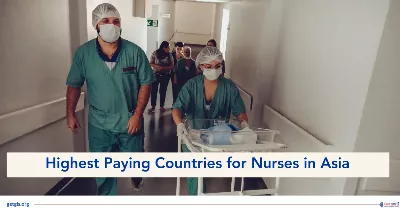
Top 10 Highest Salary Asian Countries for Nurses in 2026
Akanksha Tripathi
10/02/2026

